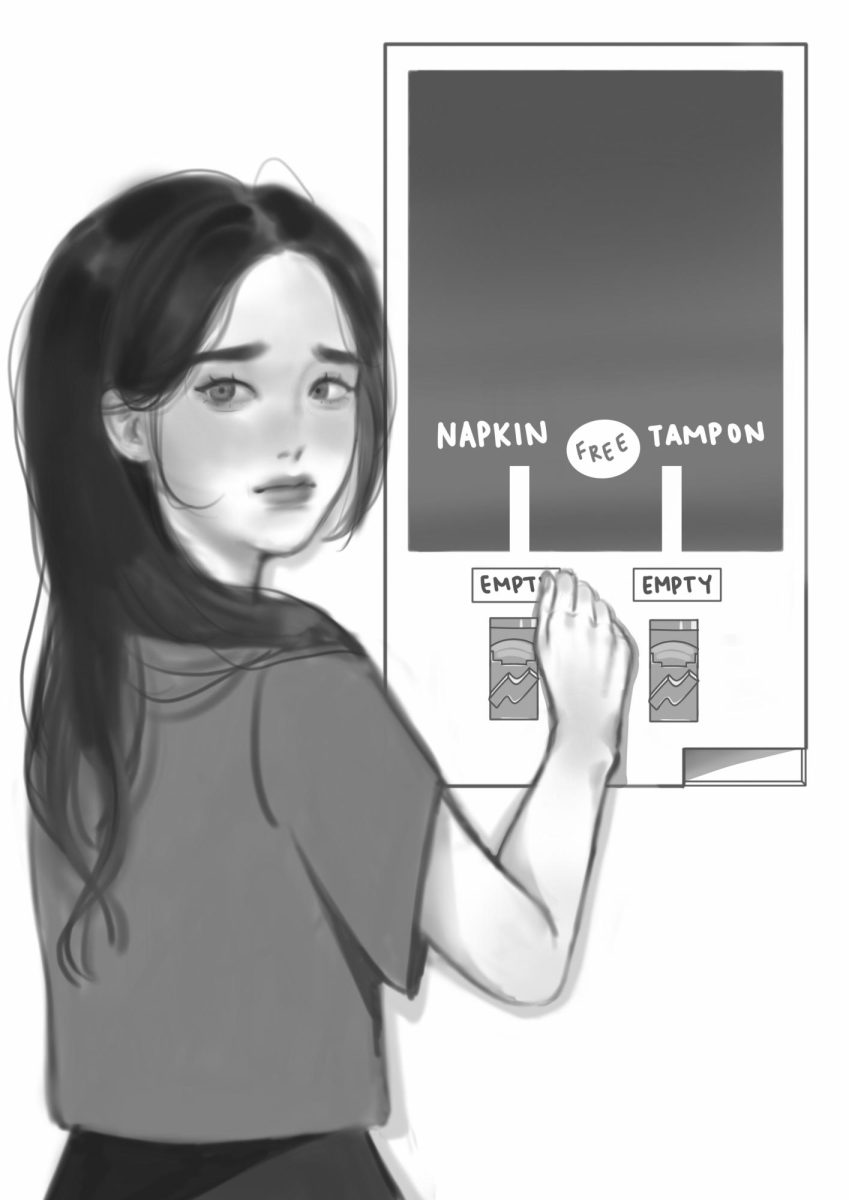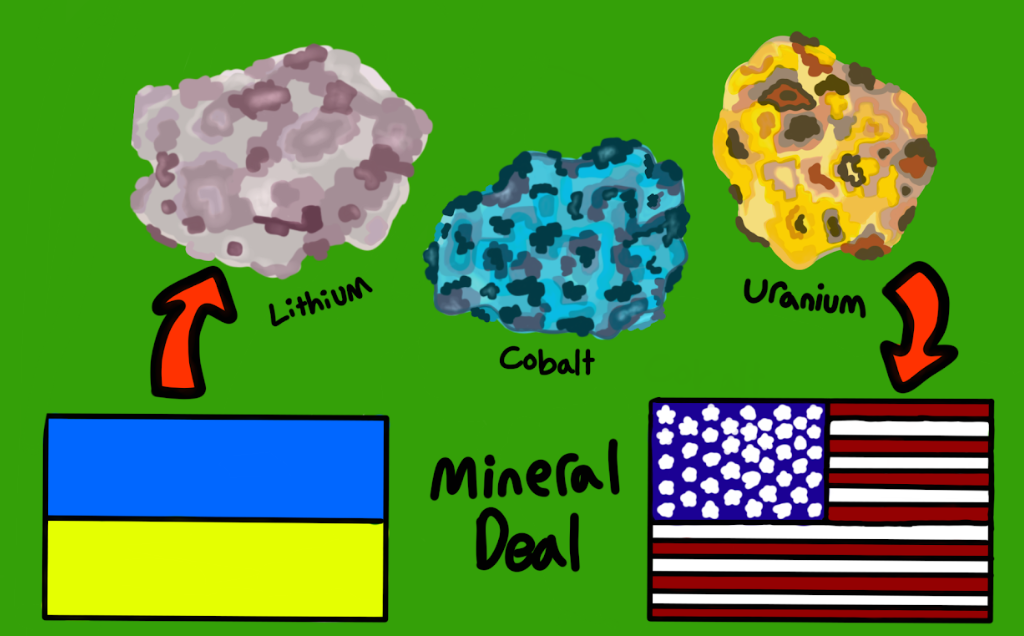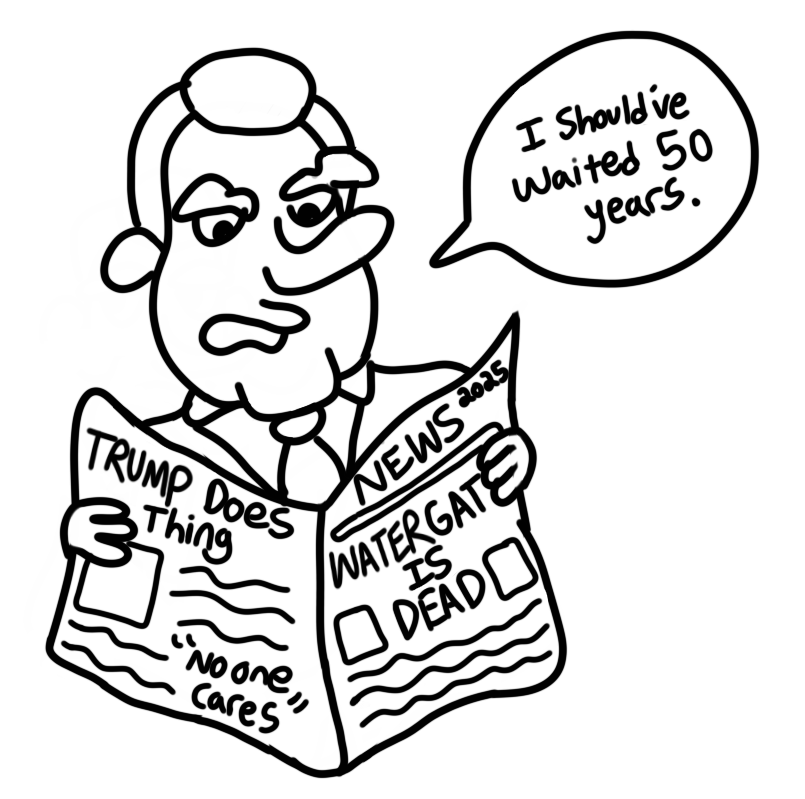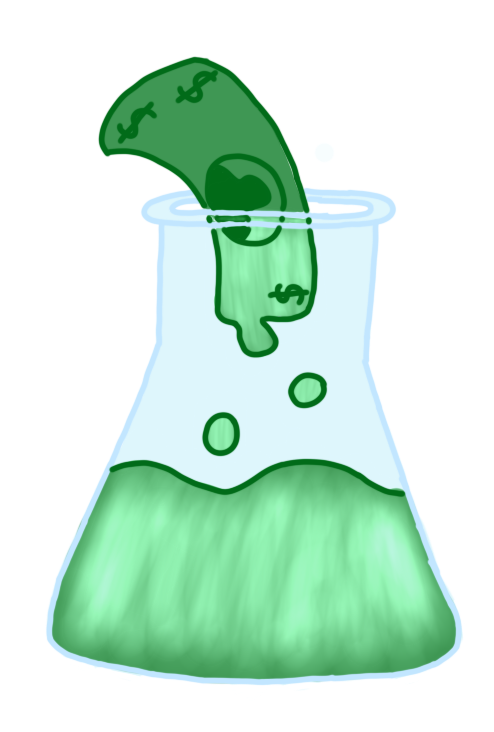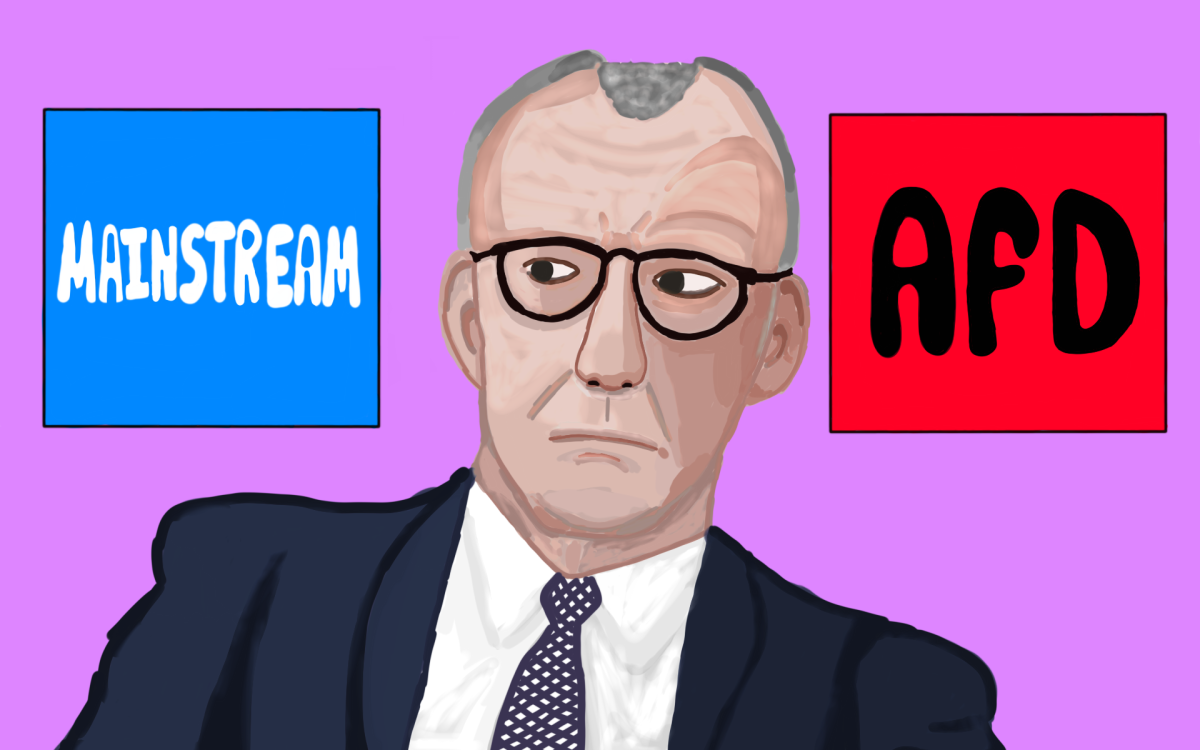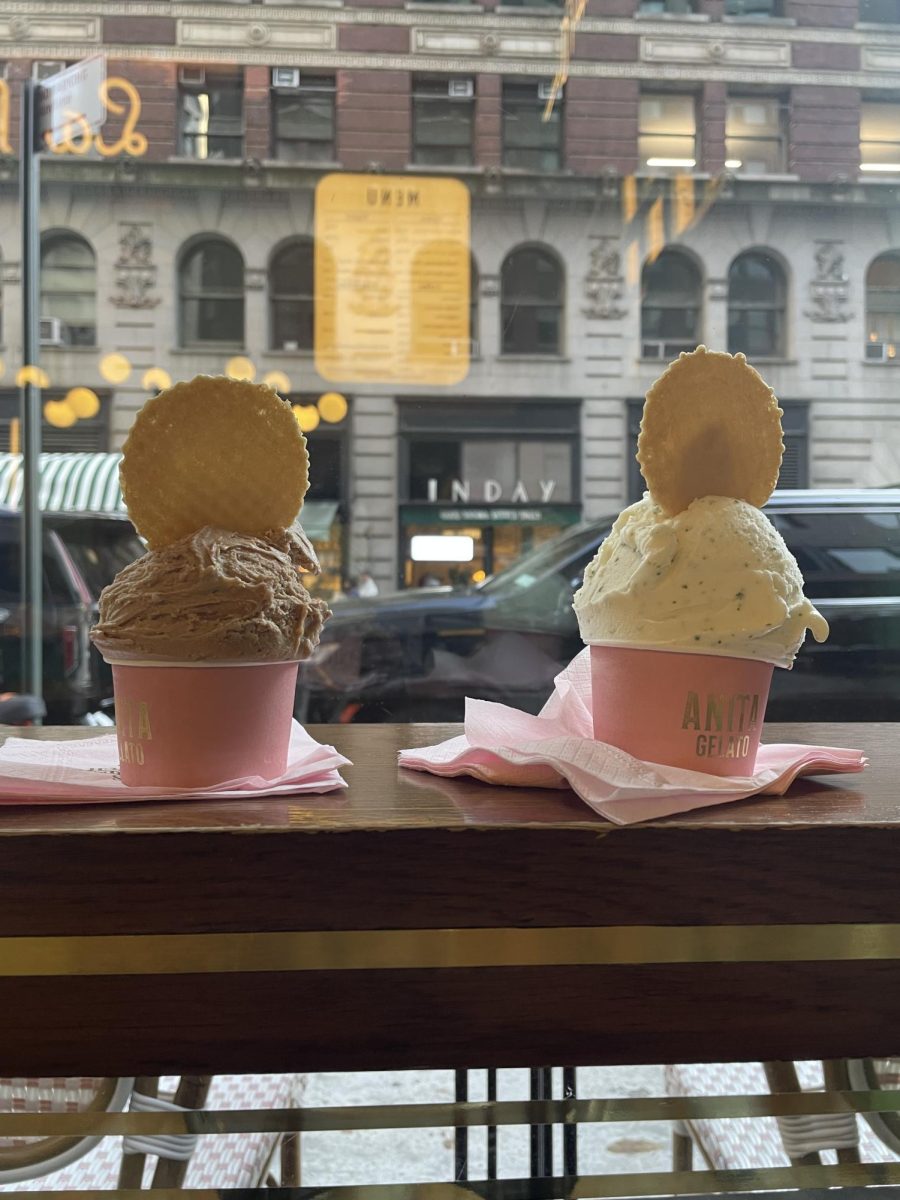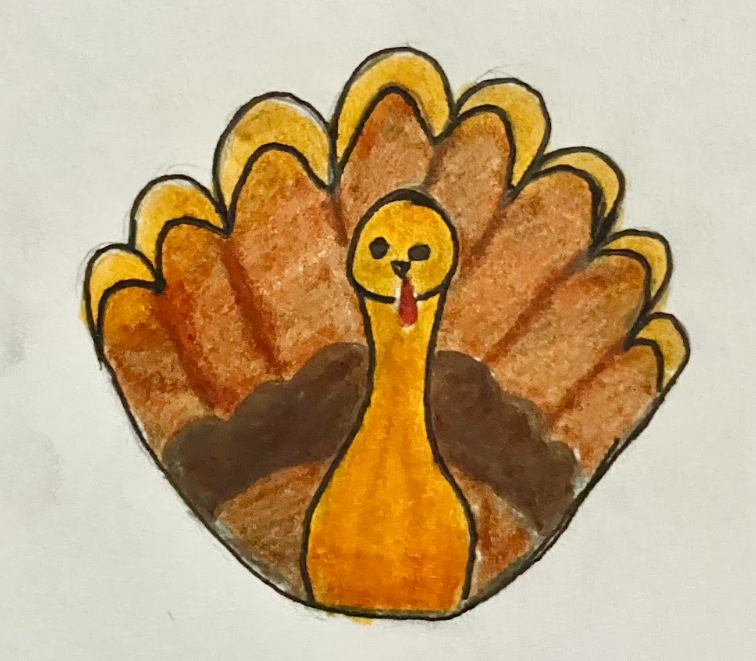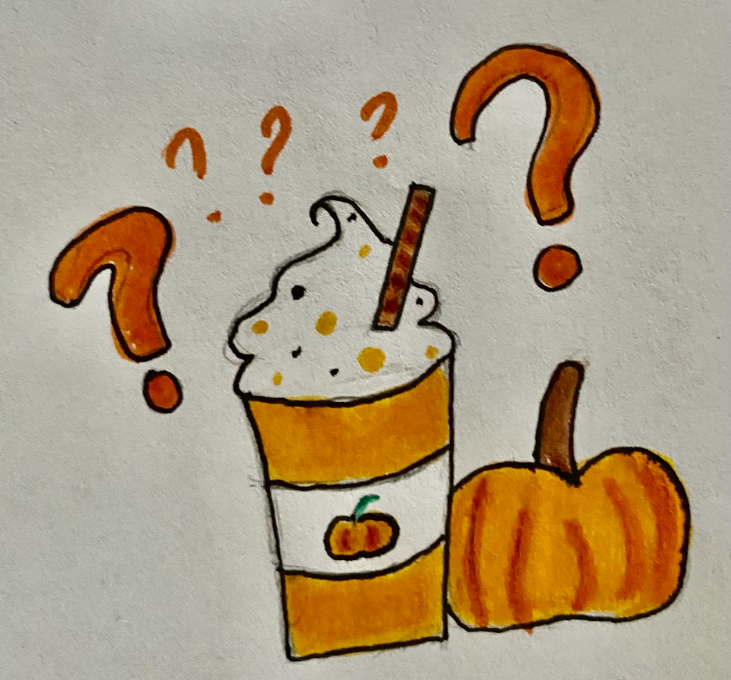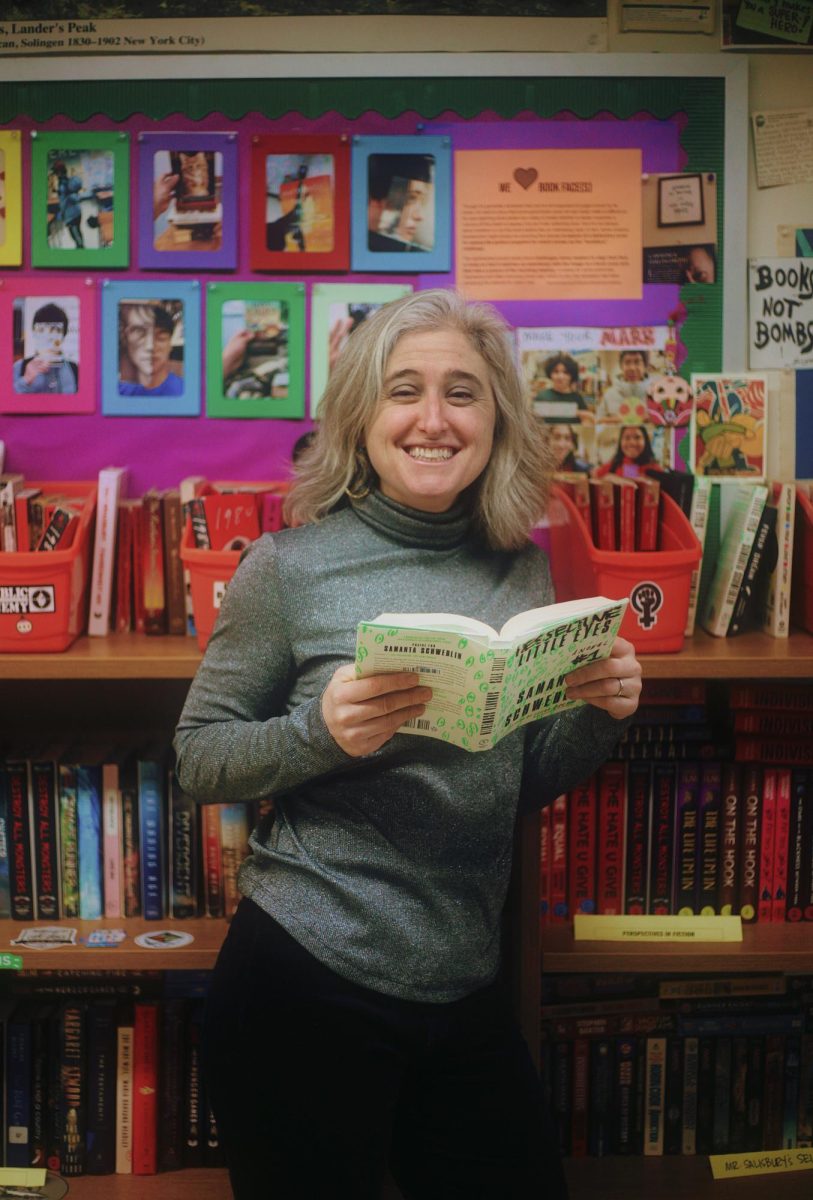Revered by many, feared by some, Ms. Hesseltine is an iconic figure of the HSMSE community. From her sticker-adorned dungeon in C5, she lovingly advises our student newspaper and drills the foundations of essay writing into underclassmen. The Echo wouldn’t exist without her endless dedication and enthusiasm; to commemorate the newspaper reaching double digits with Issue #10, we finally sat down to interview her. Read on to learn more about Ms. Hesseltine’s fascinating life, from her rural upbringing in Colorado to her time with the Peace Corps to her enduring obsession with Walt Whitman.
This interview has been edited for length and clarity.
OG: We’re about to publish the tenth issue at The Echo—your guidance and support has been so invaluable and wonderful. Looking back on our progress so far, what has stood out to you from an advisor’s perspective?
KH: When I was first asked to be the advisor, I was like, “No,” [because] I was afraid it would be so much work. But I’m blown away by how you guys really are this self-running newsroom and I feel like I’m learning more from you than anything else. I don’t think I ever truly understood exactly what [project-based learning] meant until the newspaper started, because I see you guys identifying what it is you want to know or a skill you need and then I see you doing it. It’s so inspiring; it makes me feel so good about the fate of the world. I see you guys encouraging each other and being so generous with kids coming up into The Echo. I feel like a really lucky witness to something magical happening that I could never have anticipated.
EDW: Okay, I know you see us as a self-cleaning machine, but you are our mother bird.
KH: (laughs) Well, I love it. I feel that it’s not something I direct, it’s something I get to be a part of, and it’s made me a better teacher. It helped me trust students more and then it opened the door for me to be surprised by how talented—I mean, I always knew you guys were smart—but how talented and thoughtful MSE students are. That’s on display in newspaper every day … I just can’t tell you how many times you guys think I’m over here doing paperwork, which I am, but I’m gazing out and I’m watching people volunteer with an idea, or rephrase a sentence, or bounce ideas off each other in a way that goes in this really surprising, compelling direction. MSE is already a special place, and then we get to bring the best of that special place into this room. It’s my favorite part of the day.
OG: We’re still a relatively new paper, but we’ve come very far in only a couple years. How do you foresee The Echo developing further in the future? Do you have a dream project or direction, or do you just want to see where it goes?
KH: Every time I think I have a dream project or a direction for The Echo, the different writers and artists in the newsroom are so much more creative and innovative than me. I teach ninth and tenth graders, so I would say one of my skills as a teacher is that I’m really good at building a foundation; I’m really good at making sure that things are stable and organized. But The Echo pushes me in a different direction where I can’t be in control of everything. I have to be willing to let you try some things and watch you guys struggle a little bit, and trust that you are gonna get to the place that we need to be.
(Web-exclusive)
OH: What changes would you like to see at MSE or the public education system as a whole?
KH: By far smaller class sizes. The newsroom’s a little bit different because you guys self-direct and make the classroom smaller when you need to, when you’re like, “These people over here need to work on this, and these people need to work over there on this.” I don’t want to lose any students, but I do think that if we could make the grouping smaller, we could do more of what we do in The Echo in our other classes. For me, education is more effective and more interesting … when it’s small enough that you can have that personal connection. Even with newspaper … I can’t always follow the progress as you’re developing a piece in the way that I wish I could. Also, there should be an English or Humanities track at the High School for Math, Science, and Engineering. I want you guys to know what you love and try a little bit of everything. I don’t want you guys to specialize yet because you have so much potential and so many different capabilities that you don’t even know yet.
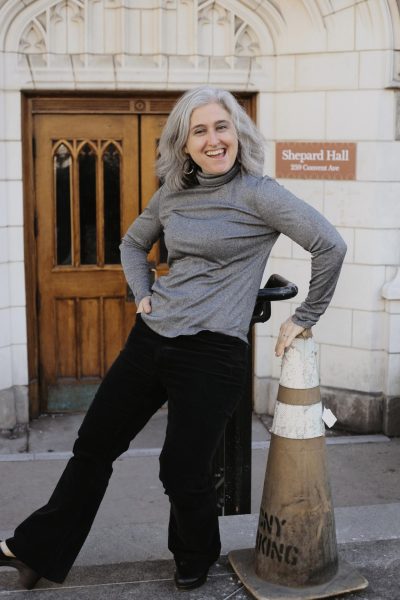
EDW: You have great outfits every day. Where do you get your inspiration from?
KH: Oh my God, I saw on your list that this was a question you were gonna ask and I told my family and they laughed long and hard. As you can tell by my hair and my clothes, every choice I make is governed around what is the fastest and easiest thing to do in the morning. I have no fashion inspiration and I have no idea what you think is my fashion sense—maybe that I sometimes wear wider-legged jeans. That’s really just because I’m from Colorado [kɑləˈɹædoʊ] and my dad’s older sister was like a ‘60s, ‘70s hippie lady who I thought was really cool. So no, I have no fashion sense or inspiration, I’m dressing like a Romantic. It really is just what’s clean and there and easiest.
OH: No, I love this—following your intuition can be the best sometimes.
You once worked as a Peace Corps volunteer in Ukraine and you still host Ukrainian refugees today. What was the experience like and how did it impact you?
KH: The Peace Corps was the most important thing I’ve ever done in my life. It really helped me understand who I wanted to be when I grew up. I went straight from college into Peace Corps. I grew up in the 80s and 90s when the Soviet Union was like [America’s] biggest enemy. All the bad guys in the movies were Soviets, right? And because I was in Colorado and there’s the Air Force Base there and NORAD [a military strategic defense complex], we used to do bomb drills in case the Soviets attacked.
So then to go and be in Ukraine, which [was] a part of the former Soviet Union, and to realize that the people that we had thought were our enemies wanted the same things as us—to take care of their families and pursue education and live in a community where they could be healthy and enjoy nature—it was really profound. One time a woman came up to me and said, “I was born in the Soviet Union. I spent my life as a Soviet. I never thought I’d see an American walk down the street.”
[I went with] Americans who were willing to leave their homes, families, and ambitions to go and serve our country and another country simultaneously, just days after September 11 happened. They were the coolest, smartest, funniest, most well-read people, [and] the best at making everyone laugh when a situation [was] tense or confusing.
All the good things in my life right now came from Peace Corps. [It] reminded me that life is so much better when we look for the things that we have in common, [rather] than the things that divide us. I did not want to be a teacher before Peace Corps, and Peace Corps is what made me think, “Oh, maybe I do want to have a career in education.” So many cool teachers at MSE—Dr. Kruckeberg, Mr. Troesch, Ms. Kasi (retired), and Mr. Keegan (retired)—were also Peace Corps volunteers. I’m proud to keep such company. I met my husband there; all of my closest friends were Peace Corps volunteers. The Ukrainians I met were amazing and still are; I’ve visited them several times since so they could meet my children. I’m actually nervous that my Mykhailenko family might read this someday and, if they do, I want them to know that they are my shining example of what it means to love with an open heart.
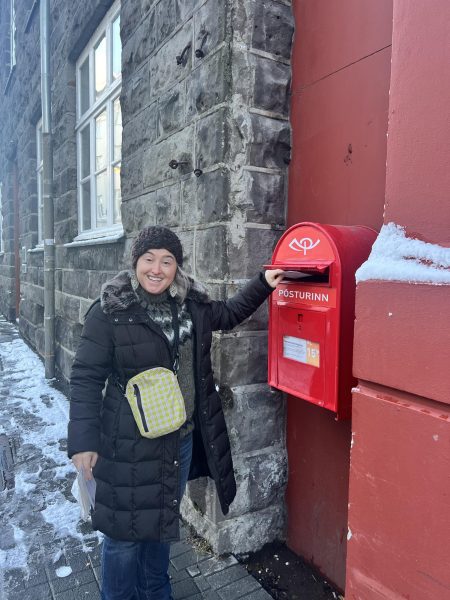
OH: Any MSE student who’s received a postcard from you over summer break knows you love to travel for leisure as well. Where have you gone so far and which trips stick out to you the most?
KH: Humble brag: I’ve visited 27 countries with my family and the two state outliers, Alaska and Hawaii. I also send around 60 postcards to MSE-ers every summer, wherever I go. My favorite place that I’ve traveled as of late is Vietnam. What a fun, young, interesting, creative society. [The Vietnamese people I met there] were just so friendly and so, like, “We want to help you.”
(Web-exclusive)
My favorite story about Vietnam is when we were going to stay on a cinnamon farm on the border between Vietnam and China. We didn’t have a car, so we were taking buses, and we got on this bus and they were like, “Nowhere goes to the cinnamon farm, so this bus will take you as close as you can get and then you have to figure it out from there.” So we got on this little, tiny, rinky-dink bus. Slowly, it fills up with more and more people, then eventually they have to take our bags because there’s not enough room. They’re like, “Oh, these Americans with their giant bags!” They take [the bags] outside [and] strap them to the top of the bus. We’re just driving deeper and deeper and deeper into the jungle and finally they stop. We’re not in a town, we’re in the middle of nowhere on the side of the road, and they start saying to us, “Okay, you got to get off.” So the bus pulls off and it’s just me, my kids who were 13 and 11 at the time, my husband, and our bags, and it’s a billion degrees and we’re just standing on the side of the road. My husband walks for a while and he can see that there’s a little stand on the side of the road. So we walk to the stand, and it’s a little roadside shack. [My husband’s] like, “Let’s just order something, anything.” We start talking using Google Translate and broken Vietnamese, broken English, and the waiter eventually realizes we’re trying to go to the cinnamon farm. He starts calling [someone] on his phone. We’re eating the food—it’s literally a leaf and you wrap it around this piece of meat and eat it—so delicious. Next thing we know, [the waiter]’s like, “Okay, my friends.” This car pulls up, they’re like, “Get in, get in!” and then they drive us to the opening of the farm.
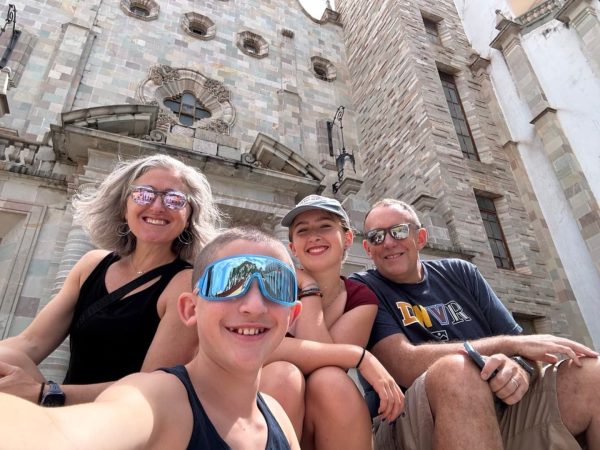
[Also], I love Mexico, their museums, their history; I can’t get enough. I’m not talking about the resorts on the beach, but just the interior of Mexico. Mr. Zara and his wife inspired me to go there because they spent several weeks traveling through.
I’ve been to most of the countries in Eastern Europe; my favorite place there [is] Lithuania and its capital, Vilnius. I mean, I feel a little guilty not saying Ukraine, but Ukraine is like a home now. One time when we were traveling in Lithuania, we got lost and had to ask for directions. We asked a woman for directions in Ukrainian and she said to us, “I’m going to tell you where you’re going, I’ll answer you because you asked me in Ukrainian and not Russian,” and that had to do with some of the [historical] tensions.
OG: Also, don’t you speak Ukrainian?
KH: Enough to fight with cab drivers.
EDW: If you’re fighting with a cab driver, you are fluent.
OH: How many languages do you speak?
KH: I minored in Spanish in college, so I can understand it pretty well. But my speaking is awful now because it’s been so long and I just don’t practice it; I feel too self-conscious. I [also] studied Greek and Latin. I was such a dork. Now, I am an adjunct professor in the Bilingual Education and TESOL (Teaching English to Speakers of Other Languages) Department at CCNY.
OG: Have you ever had one of those “They’re talking about me in this language they think I don’t know” moments?
KH: One time, my husband and I were hitchhiking [in Ukraine]—don’t hitchhike!—but in Ukraine at the time, that was very common. Ukrainians think that Americans close the car doors too forcefully; they would always complain about that. And my husband closed the car door and the Ukrainian in the front seat said, “Oh my gosh, take it easy, you big potato!” in Ukrainian. When we laughed, the Ukrainian was slightly surprised that we understood what he said.
(Web-exclusive)
OG: When Siona and I were doing our “Which Teacher Would You Be” quiz [from Issue 7], we had a question, “Do you have a nickname and if so, what is it?” You answered “Ho Chi Mama,” and that piqued our curiosity. Can you elaborate on that?
KH: It was right after I came back from Vietnam. … It’s from the communist leader Ho Chi Minh, who helped guide Vietnam in [gaining independence] from the French during the Vietnam War. But it’s just a joke with the teachers—not that they call me Ho Chi Mama, maybe Ms. Walker does sometimes!—because each department has one person who gets stuck with all the paperwork … I was teasing the English Department that if I was going to do this, they were going to have to call me Ho Chi Mama, because I had just come back from Vietnam. We also have call signs where we used to call each other on the phone … you know, when you’re a trucker and you’re on a CV, you have a call sign. There’s a famous movie called Convoy about truckers trying to truck Coors Light into other states … In that movie one of the characters’ call sign is “Rubber Ducky,” so I’m always trying to get Mr. Zara to call me Rubber Ducky: “Hey Rubber Ducky, I need you to cover next period!”
OG: Has it ever worked?
KH: Mr. Zara is the most likely to do it, but no one else is.
OH: You’re an avid sticker collector, as seen all over your classroom. What do stickers represent to you?
KH: Stickers; literature; the newspaper; my experiences in Ukraine. They all have this idea in common of things that connect people through time, history, and places. I can’t tell you how many times a student will come up to me and be like “Oh, I saw that sticker” and “I’ve seen that movie too,” and then it becomes a shared experience that we can talk about together. And so it’s like this idea—I tend to like literature that talks about this too—that we all are individuals with our separate experiences, but there are things that connect us and bind us together.
OG: Do you have any favorites?
KH: I love “I’m a book dragon,” that makes me laugh because we’re dragons. Oh, and I love this [Trans World Airlines] one that’s from my son’s birthday. Casa Bonita: This is the restaurant in Colorado that they have cliff diving at, and it’s the punchline of a million South Park episodes. Midnight Oil is a bookstore in Greeley, Colorado where I grew up. Oh, yes, I do have a favorite! *She points to The Echo sticker.* I always start to feel sad when stickers start peeling off and you start losing them, but someone told me once it’s just a chance to find another.
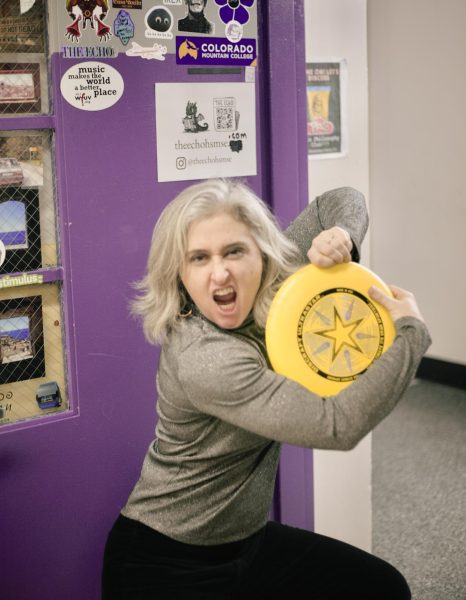
(Web-exclusive)
EDW: I was a witness in my freshman year [2021–22] when you infamously pulled up to a push-up contest you weren’t even competing in and you gave us … so many push-ups. You have a reputation for being insanely strong. Give us the deets—any sports? What’s your workout routine?
KH: In fairness, I was being silly and jokey in that moment. The only reason why I was prepared for it is because my dad and I did 100 push-ups a day for 100 days. My dad’s in Colorado, so we did it every day as a check-in: “Did you do your hundred?” I normally can’t just be like, “Let me do this.” I hate running but I try to do it every day; it’s painful but you feel better when you’re done with it. I love playing frisbee with my son—oh, it’s such a beautiful, fun thing! [MSE, be sure to] take advantage of my Borrow a Frisbee program in C5.
The only sport that I would say is really my thing is snowboarding. I grew up in Colorado in the ‘90s and the early 2000s and if you were a cool kid, you did snowboarding. I snowboarded when I was in college and then I didn’t snowboard again for 20 years. When my kids got old enough to start doing it, we started doing it again. I have a divided family: My son and I snowboard and my husband and my daughter ski.
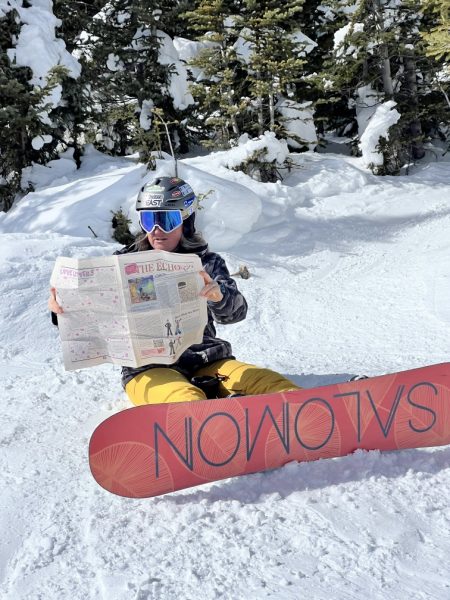
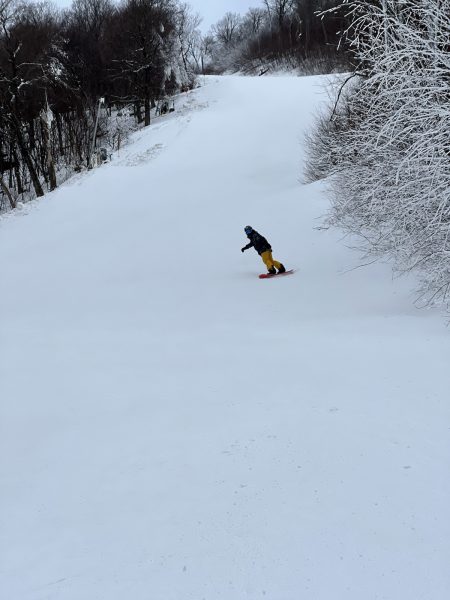
(Web-exclusive)
EDW: What’s your Letterboxd Top 4, like basically your four favorite movies of all time?
KH: I mean, Everything Everywhere All at Once—
EDW: I did know you were gonna say that.
KH: It’s one of those movies that is really overwhelming at first, but if you settle in, you start to realize it’s excellent. It made me a better teacher because of the idea of the eyeballs: Look for the positive, look for the good, try for kindness instead of anger. The Eternal Sunshine of the Spotless Mind I love. Arrival [is about] space and linguistics and it’s based on an amazing short story. Oh, and then I really love old-timey movies. Amélie: I saw it in Peace Corps and we used to actually teach it as a part of our literature class, but that was all Ms. Boylan’s idea.
OG: What’s your favorite piece of writing to teach and why? Or what’s a piece that you don’t teach that’s had a significant impact on you?
KH: I love Walt Whitman, so any chance I get to teach [his work], though we don’t teach my favorite Walt Whitman in class because [it] can kind of be unwieldy. My favorite Whitman not in curriculum (this felt a little like choosing my favorite child): “Miracles.” I love him! I think it would be so fun to hang out with him: he’s a New Yorker and he’s so optimistic. I used to be like, “Mom, for Fourth of July, let’s get together and we’ll read Walt Whitman poems out loud while we watch the fireworks!” My mom would be like “Okay…” (laughter)
EDW: I like how you’re just stanning Walt Whitman.
KH: I mean, every author has his problems—there are problems with Walt Whitman—but in general, [I love] his enthusiasm for finding the goodness and seeing [it] as something that connects all of us. *She points to Walt Whitman poster.* My family gave that to me for Mother’s Day. We went to a teeny tiny museum in Long Island, the house where Walt Whitman was born—he only lived there for four years, but it’s still cool and you can go see it.
I didn’t love teaching [The Metamorphosis by Kafka] when I started, but now it’s probably my favorite because [it has] so much that can resonate with students and that’s really gratifying to see.
OG: Although I still think we should read Ms. Walker’s translation.
KH: Yes!! I want to do the research class and have our foundational text be We Are All Completely Beside Ourselves; [I’d use] that as a baseline for everyone to then do a piece of research off of because I find that book so surprising.
A book that has had a huge impact on my life? Oh, that’s so hard. A Constellation of Vital Phenomena is so beautiful. It’s set in Chechnya, but a lot of what’s there resonates with the experience that I had in Ukraine too.
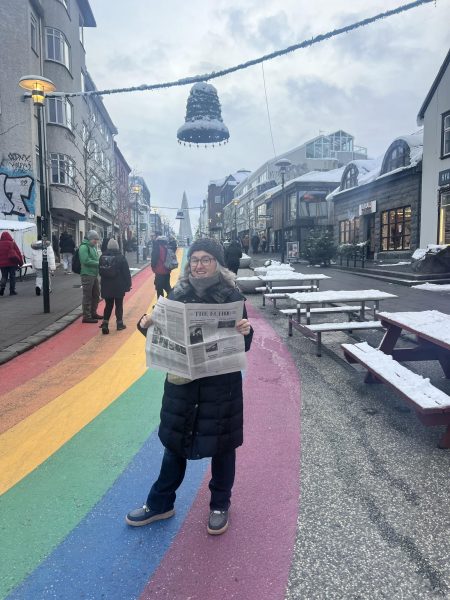
(Web-exclusive)
OH: You play your sophomores “Do You Realize??” by the Flaming Lips with the idea that music is often a form of literature. Other than that, what songs are important to you?
KH: I have to give credit to playing “Do You Realize??” to Ms. Boylan. We often plan lessons together, and she was the one who was like, “I think this is a great way to introduce Romanticism,” so I have to give her credit for that. When I had my daughter, I remember sort of feeling like “Do You Realize??” is what I want to tell her about the world.
Songs that I listen to: My family has a running joke of what song we want everyone else to play at our funeral, and my answer to that is always “Return to Sender” by Elvis. Just because I think it’s so funny. My favorite song changes daily, so I’ll go with a classic that is also my mantra lately when the state of the world gets me down: James Brown, “People Get Up and Drive Your Funky Soul.”
EDW: I associate you with ABBA.
KH: ABBA is kind of a joke I have with my professor and mentor in linguistics, because the way that you indicate word order in linguistics is AB/BA and so we joke ABBA is our band because that’s what we’re studying.
EDW: What were you like in high school?
KH: I went to a very tiny high school in the middle of the Eastern Plains of Colorado, but I thought I was a city kid because I was the only person I knew who didn’t grow up on a farm. My school had a Bring Your Tractor to School Day, and I was sad because I didn’t have a tractor to drive—I just had to drive a red pickup truck. I had a very different high school experience than [at HSMSE] because it was like a small town with nothing to do.
I grew up in the feedlot capital of North America [Greeley, Colorado], so all my friends lived on farms or feedlots, which is where they keep cows before they slaughter them. My town’s famous for smelling like cow [poop]. You can fly over my town in an airplane and you still smell it. When I was growing up, everyone said, “That’s the smell of money,” because everyone made their living through cattle.
Whenever we’d have a party, we’d be out on somebody’s farm in the middle of nowhere, but there were always these electric cow fences. For safety reasons, the electrical charge is based on the amount of weight that touches it, so a cow shock is much stronger than for a person. But farm kids know that if you touch it, and you get more weight besides just you, then it has a bigger shock. We would stand in a line and hold hands and wait for someone to walk by, and then the person at the end would touch the fence. The charge goes through all of you and it’s strongest on the end, so it would knock them off their feet. DON’T do this! It’s so dangerous, I’m sure, but that’s the kind of thing we did for fun.
OG: Did you ever go cow tipping?
KH: That is NOT a real thing!!! It is a myth that westerners and farm kids tell city kids to get you kicked by a cow.
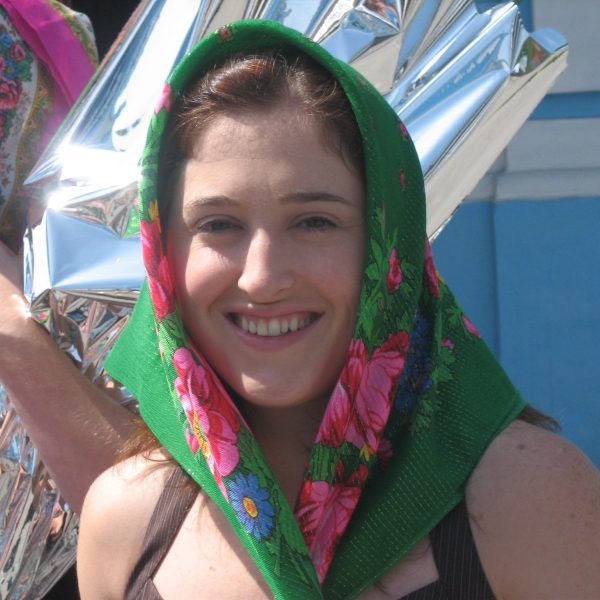
OH: What advice would you give to your younger self, or to students today?
KH: I was a very serious student and bought into the idea of grades being more important than anything else and feeling pressure to know the exact right thing to be doing. But now I know, and [I] wish I could tell students like me: Take more risks and don’t be so hard on yourself. Give yourself a chance to explore things and do them, just for the sake of it being fun and interesting. Be a little more open-minded.
OH: That really resonates with me. I feel like I’ve been living my entire life for academic validation.
KH: For you guys, I think it’s even more egregious and it terrifies me. Do not fall for the idea that grades are anything other than a label. It’s so cliche and cheesy to be like, “Find what you love and do it.” But I think that’s it. Also, you guys, slow down. Be high school kids. We start talking about college now in, like, eighth grade. Why are we skipping high school as a time to explore?
EDW: I’ve heard a lot of teachers these days say in general they feel like skills like literacy and reading comprehension have been going down. Do you feel like there’s been a change?
KH: The kinds of skills you need change as our world becomes more digital, of course. The fundamentals are still there: you need to be a critical thinker, a careful reader. The more convincing you are in your writing, the more powerful your message. But being able to manage and juggle the firehose of information and opinion that’s directed at you guys because of the digital world—that’s different and you guys are way better at handling it than I think adults are. Watching you manage it and help each other, and having a good sense of when digital and analog best serve you is so interesting and impressive. Not everybody has a good balance yet, but I think it’s possible.
Put down your phones: I say this as advice to you guys and to myself. Let’s all just be in the same place together. When I was in Peace Corps, we didn’t have phones. My town didn’t have internet. I was going crazy. But after a while [I] learned to be alone with [myself], and that’s advice I have for everyone too: Put down your phone and learn to be alone with yourself. That’s a really beautiful thing, to be content with your own company and not need the external distraction. My husband and I will sometimes be like, “I’d give anything for a Peace Corps week.” I’d go all week speaking English to my students but to no one else, and it was isolating and lonely at times. But I came back better able to be okay with who I was. You have to be okay with who you are.
OG, OH, EDW: Thank you so much to Ms. Hesseltine for sharing her incredible stories and wisdom! To recap: Don’t hitchhike, don’t zap people with an electrical fence, but do indulge in physical media and find beauty in shared human experiences. And join The Echo, obviously.
KH: AANNDD … Whatever else you do, don’t get hit by a car and don’t get arrested!!
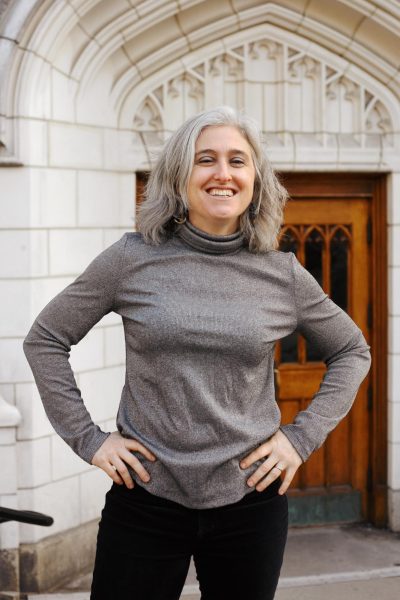
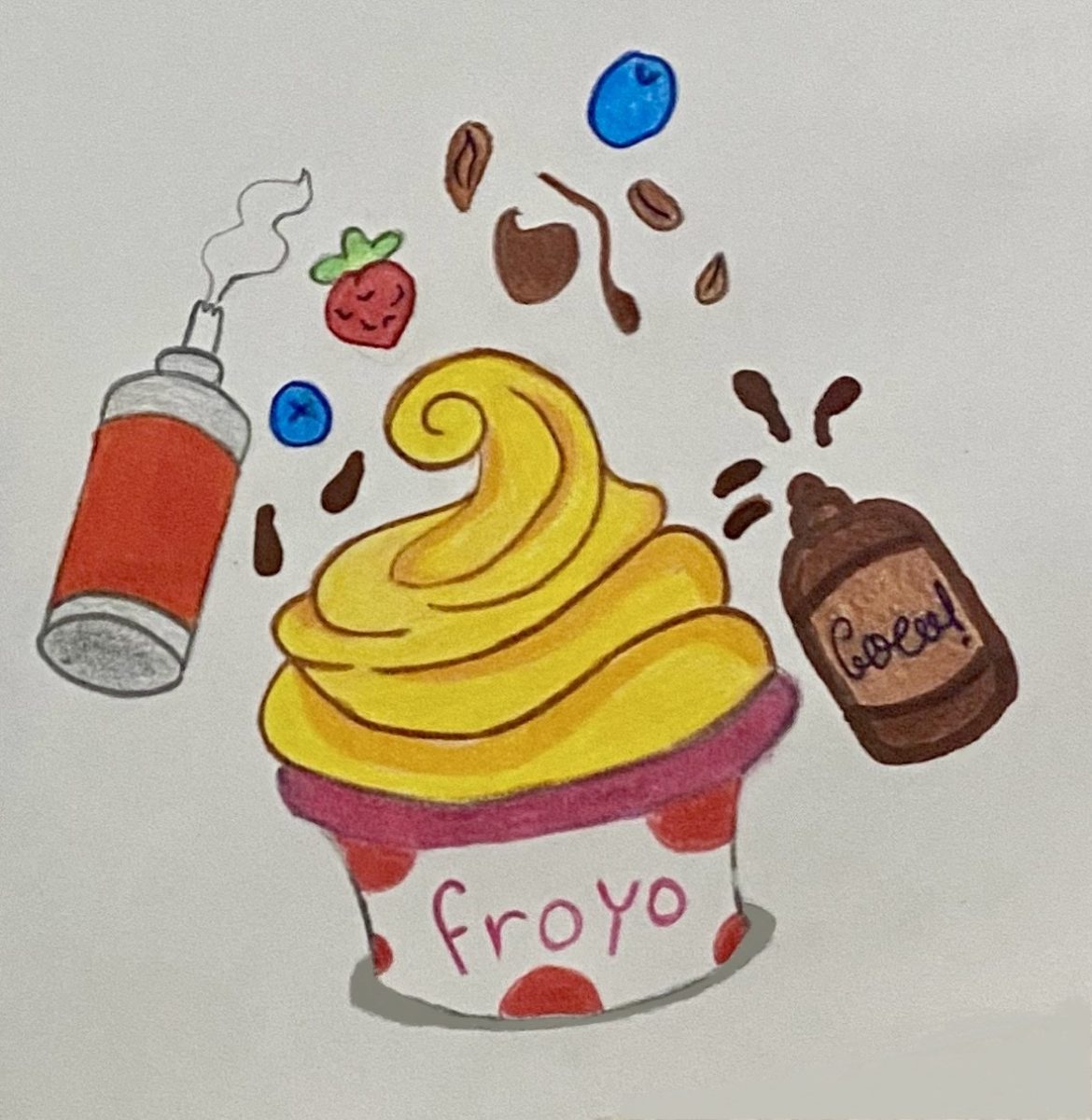
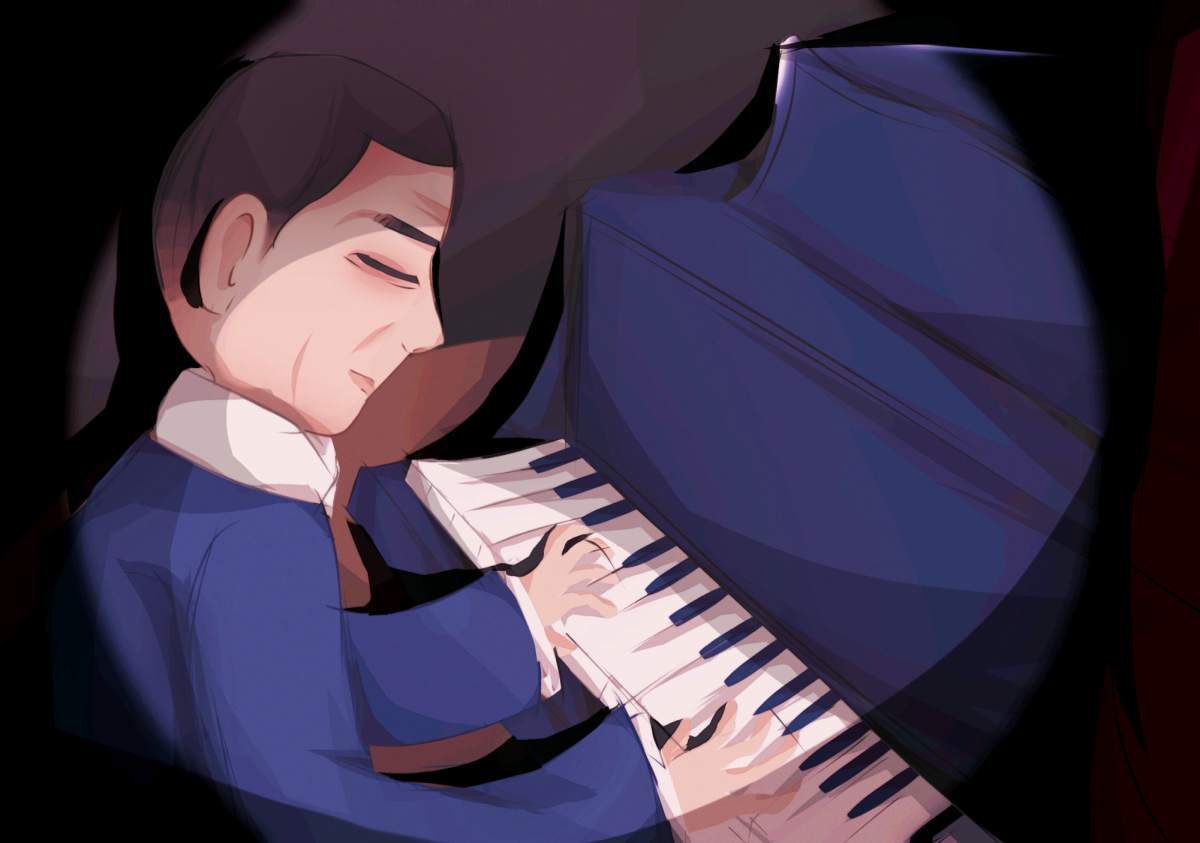
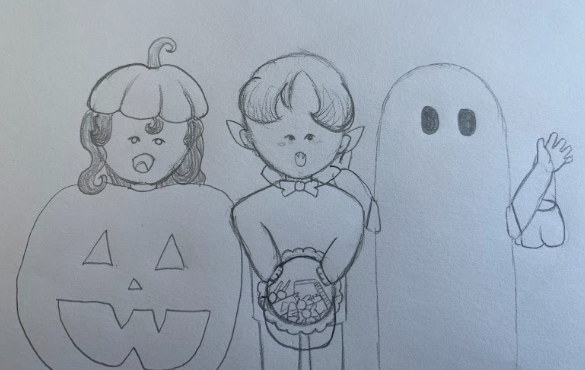
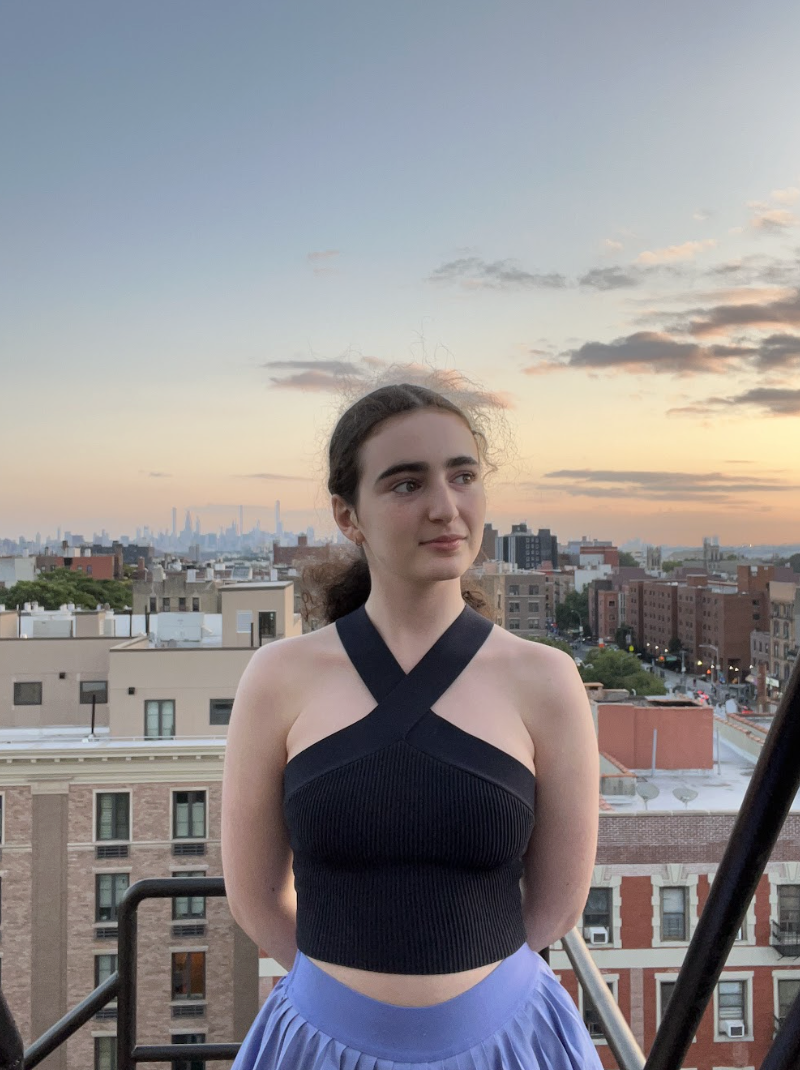

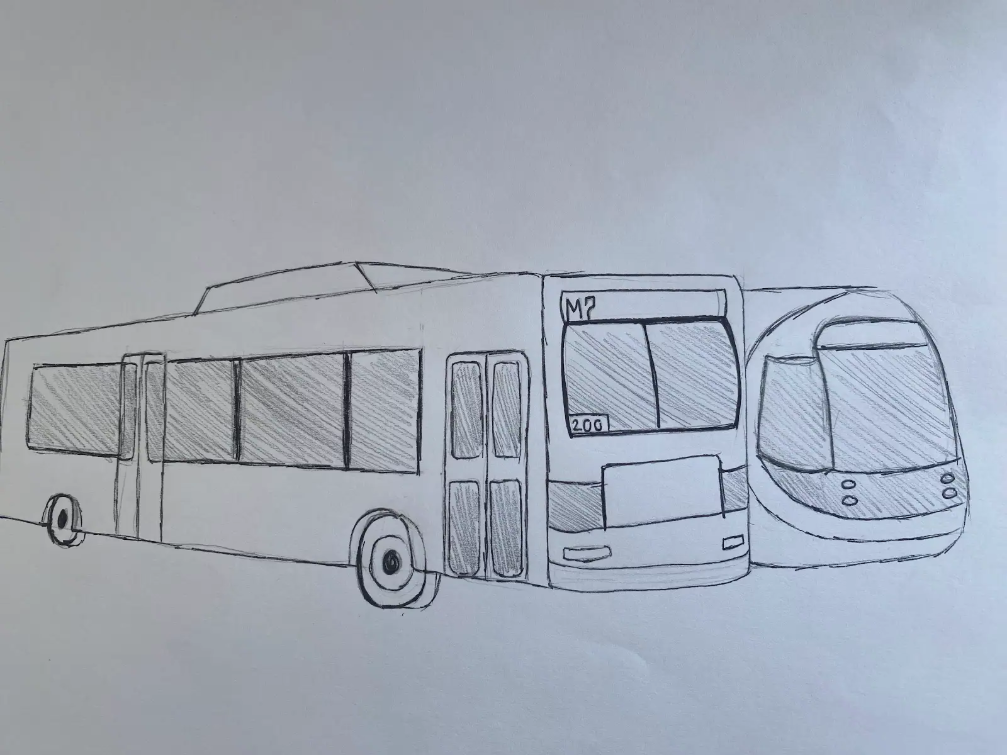
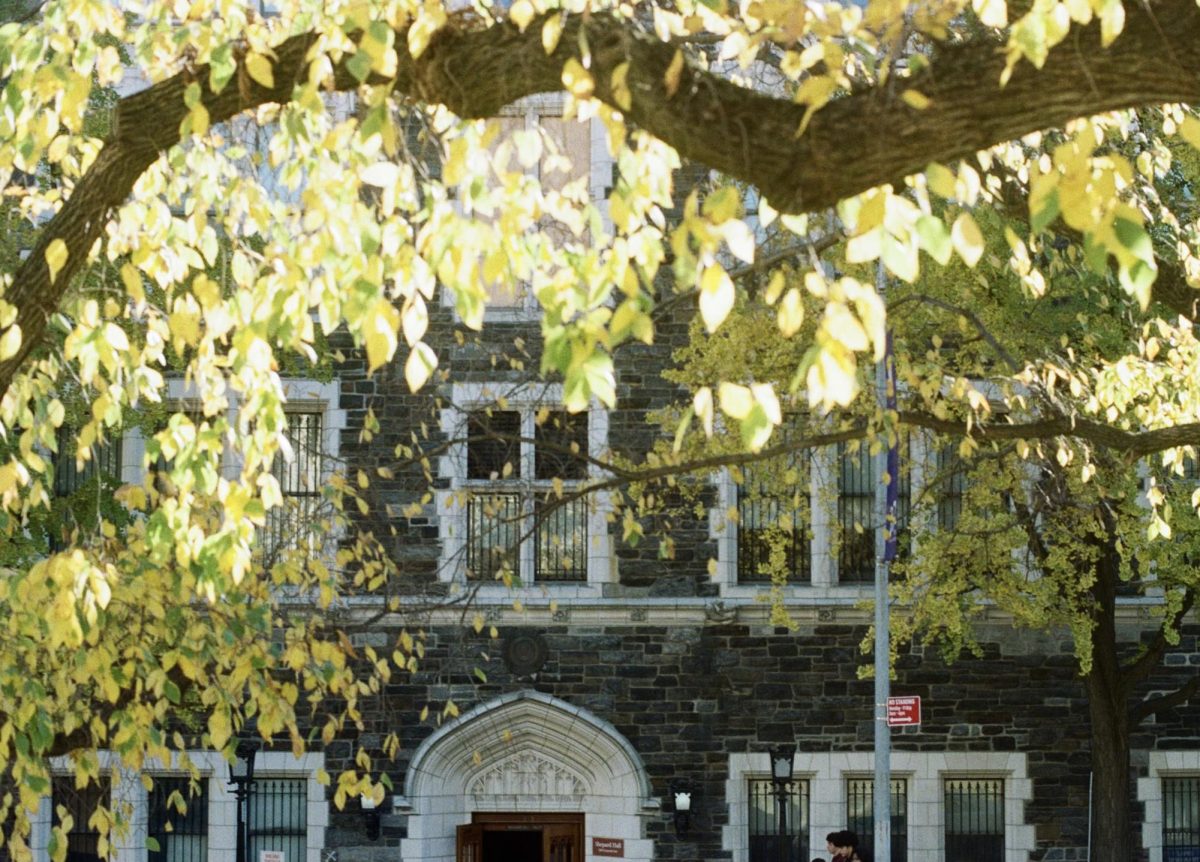
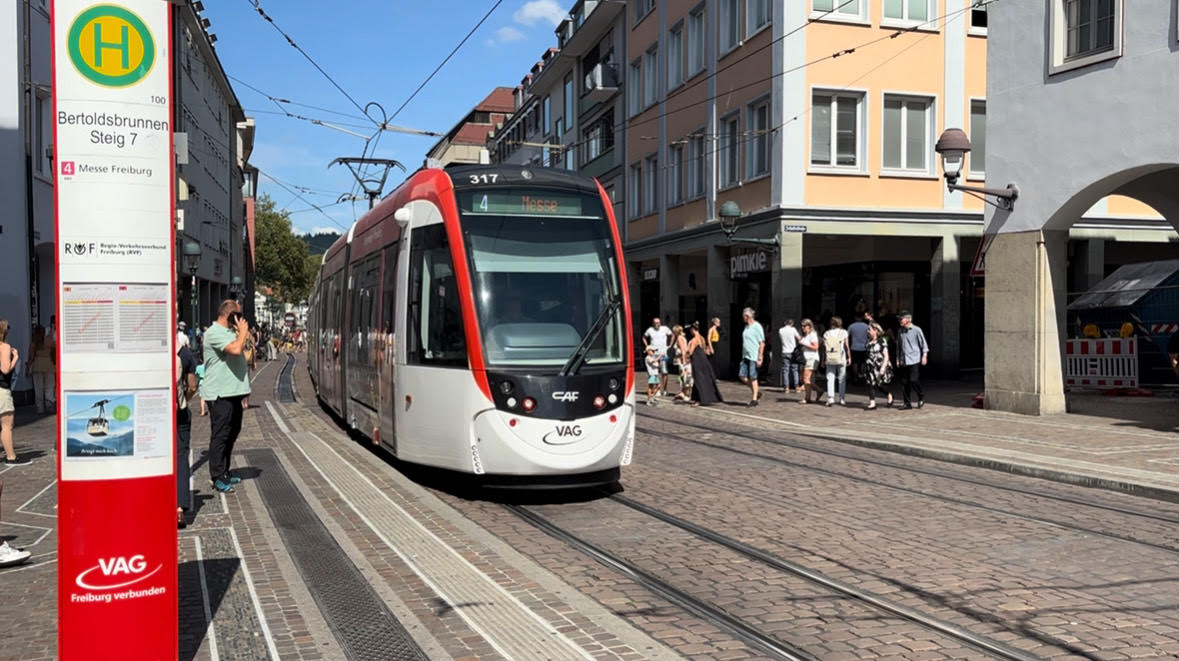
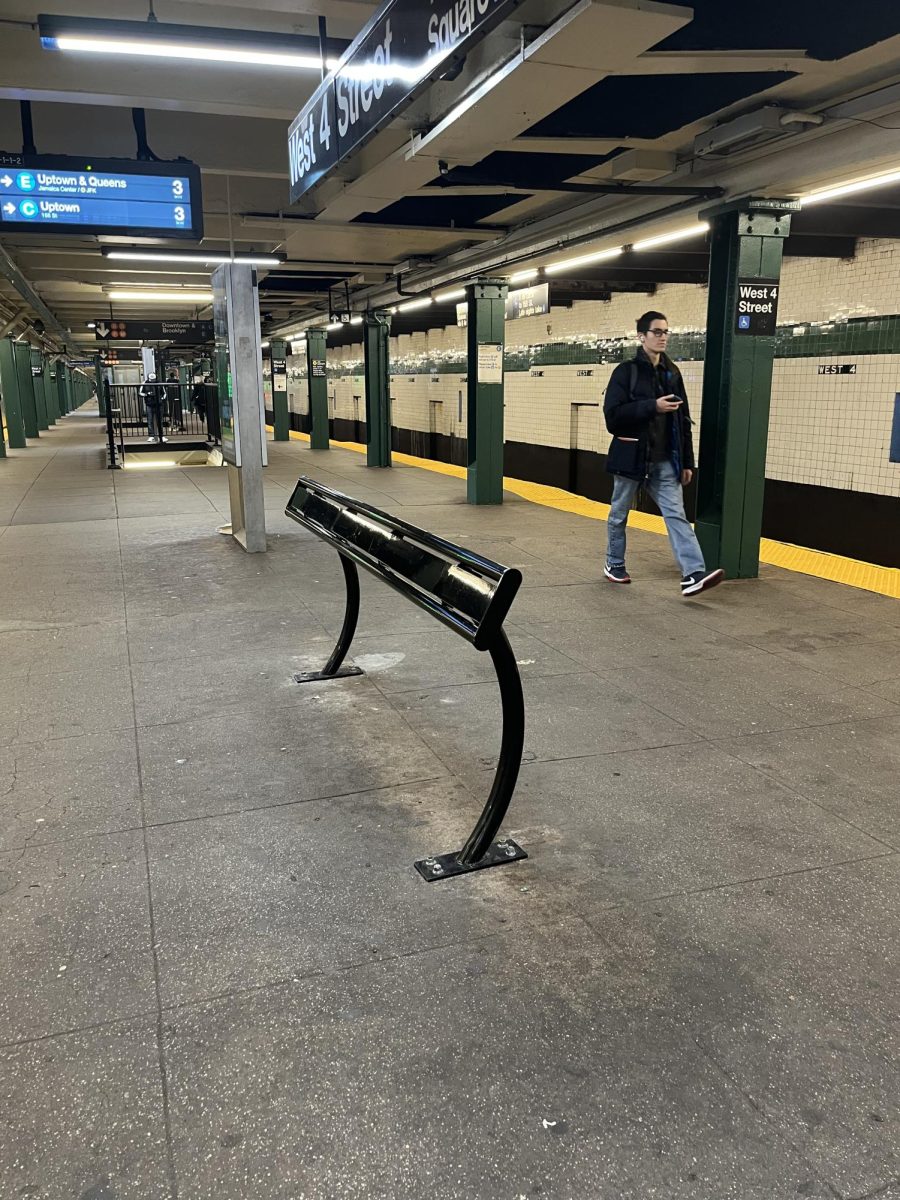
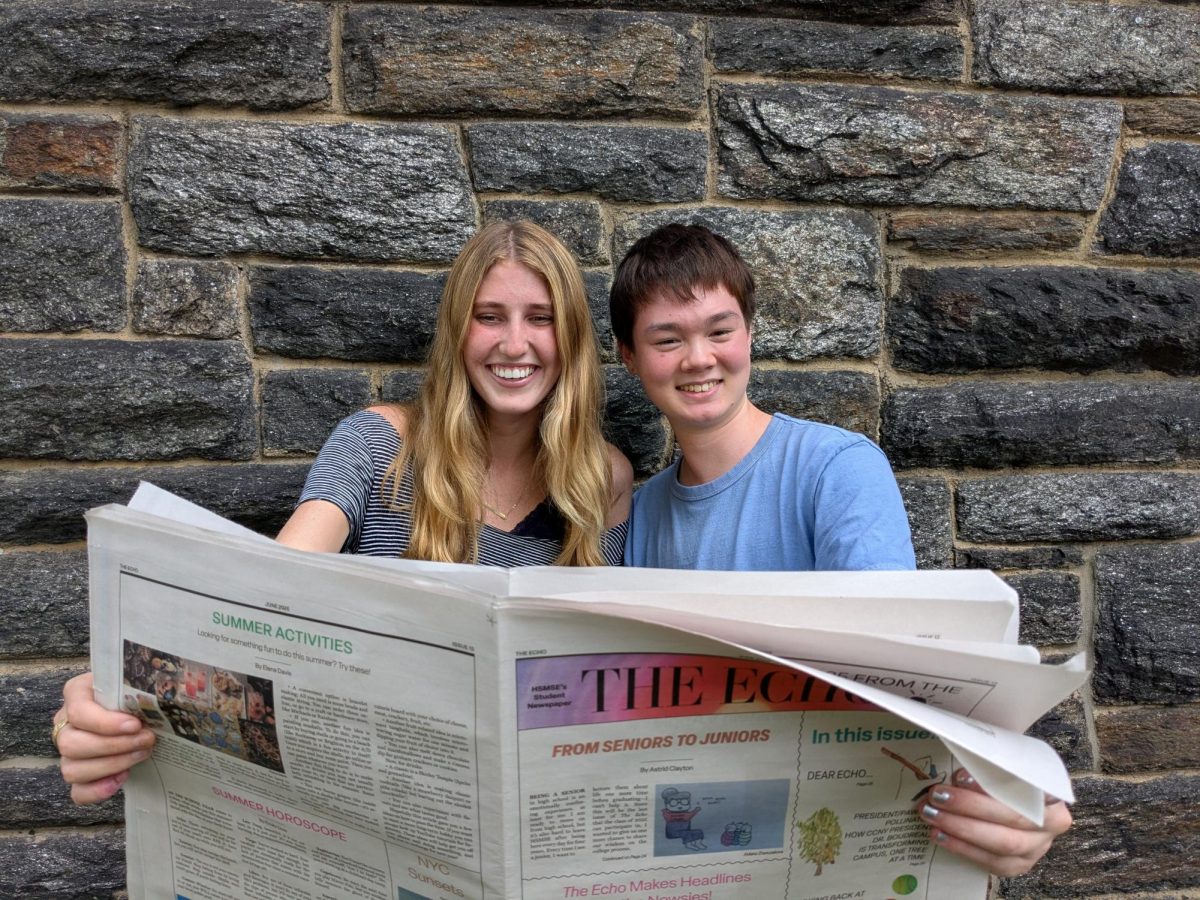
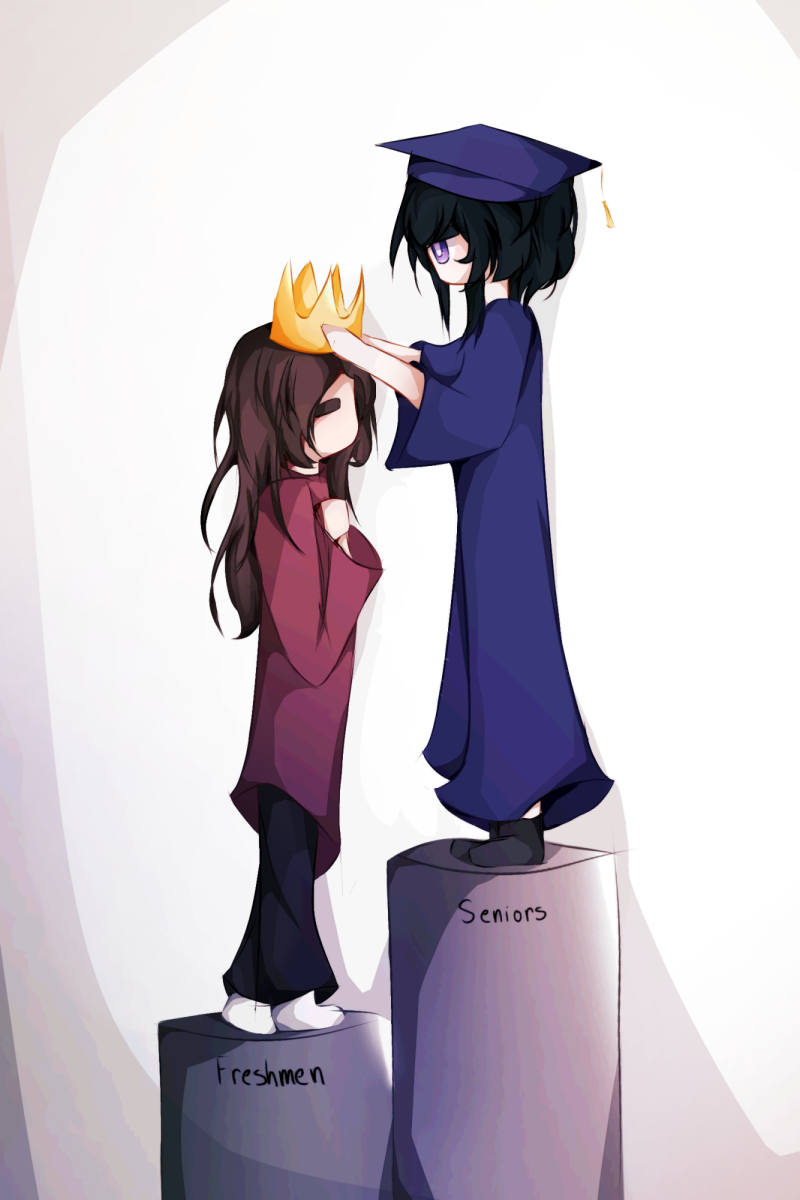
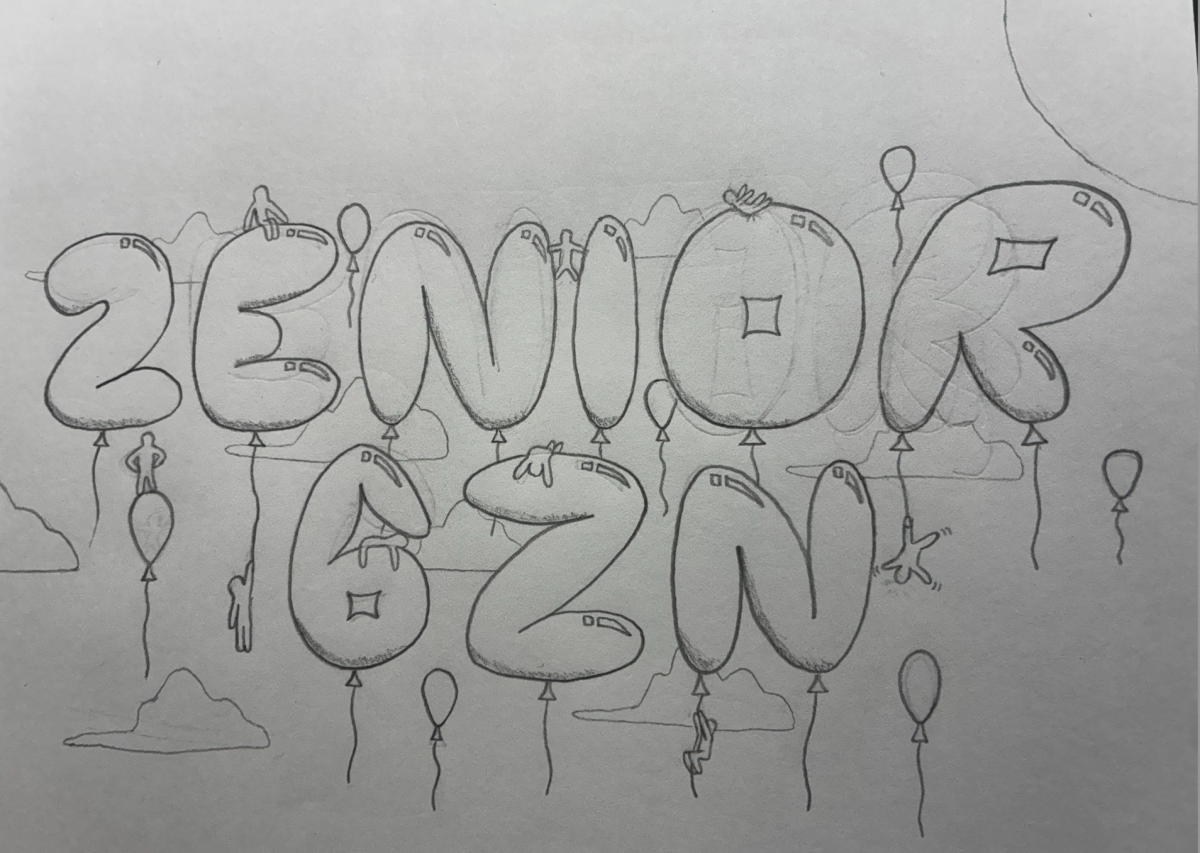
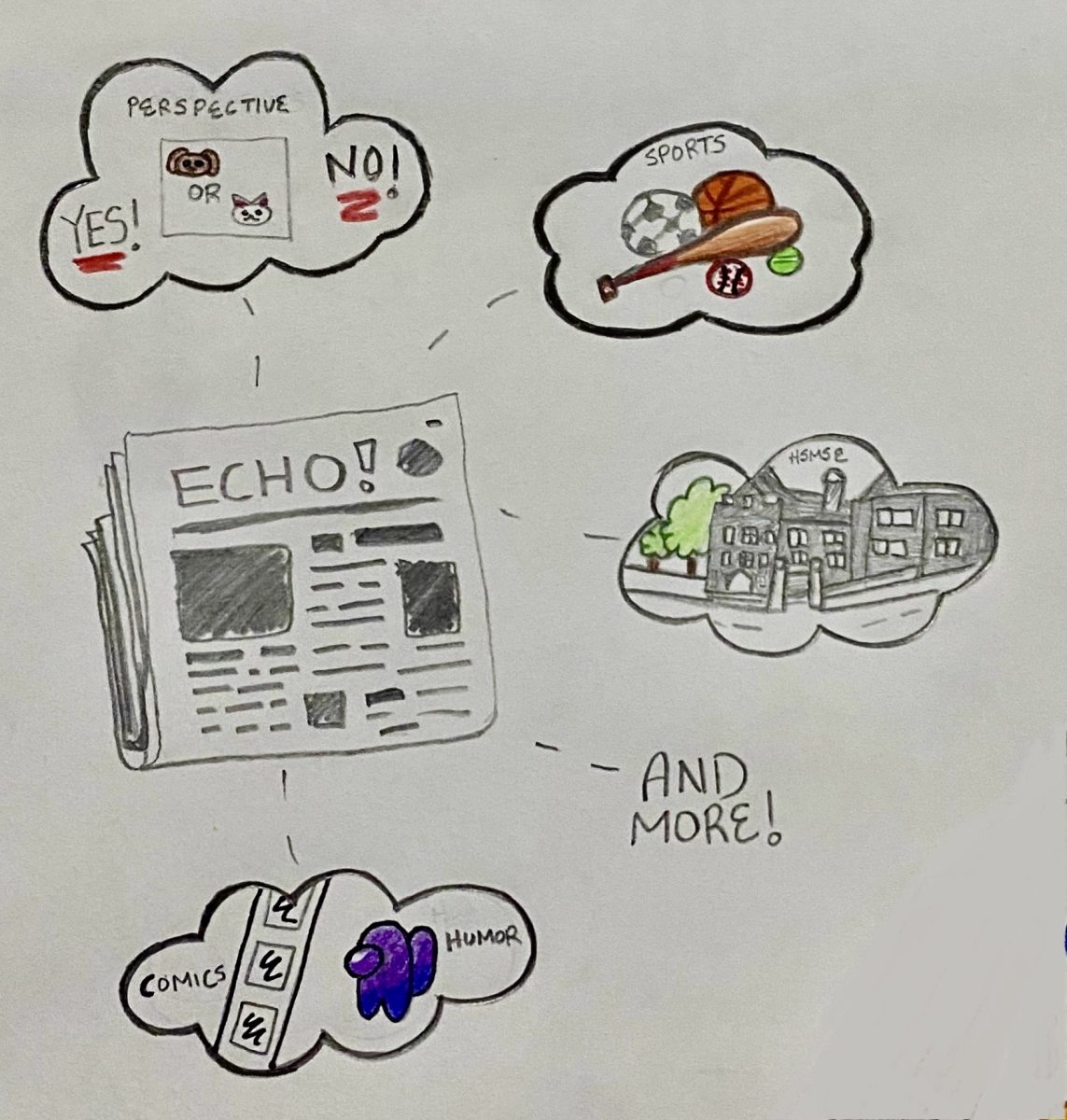
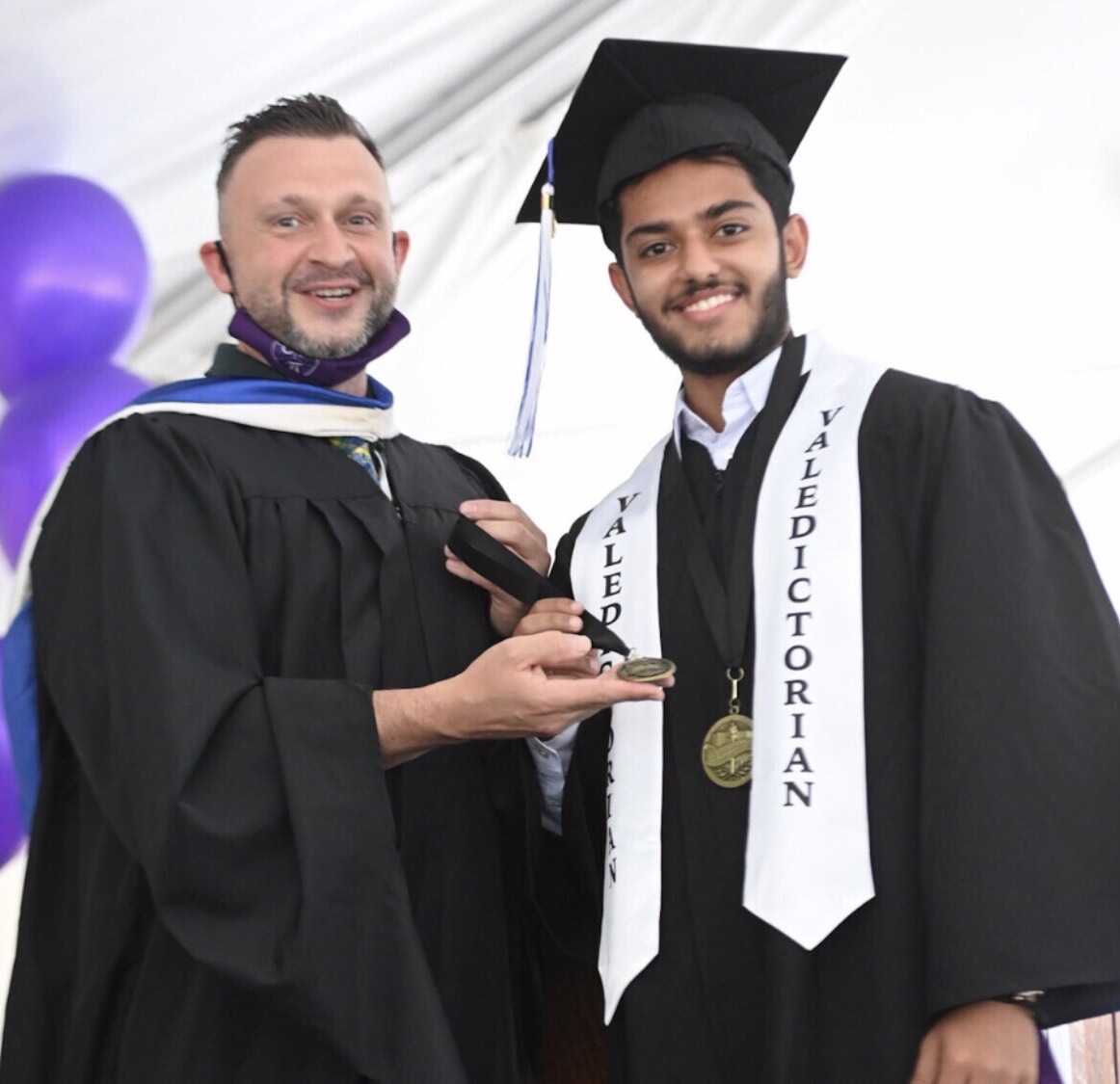
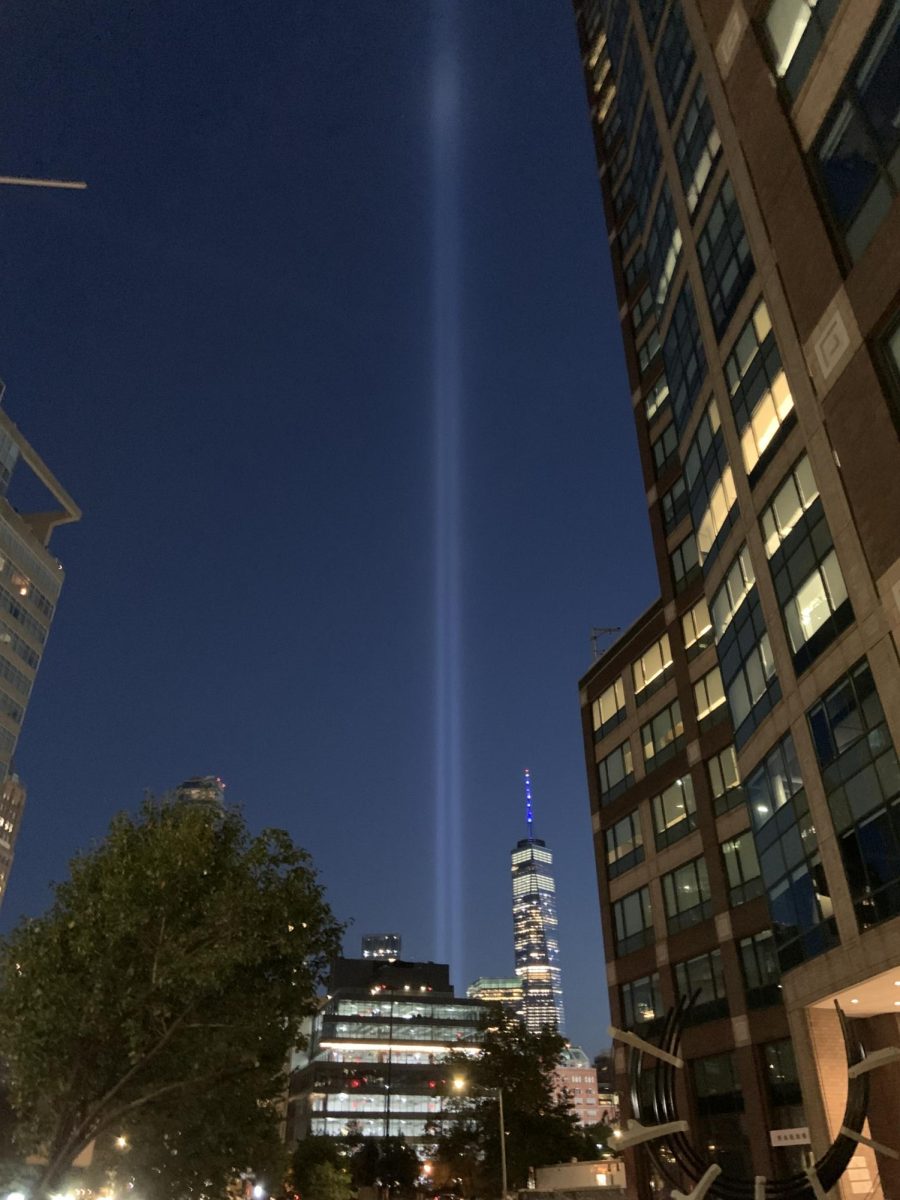
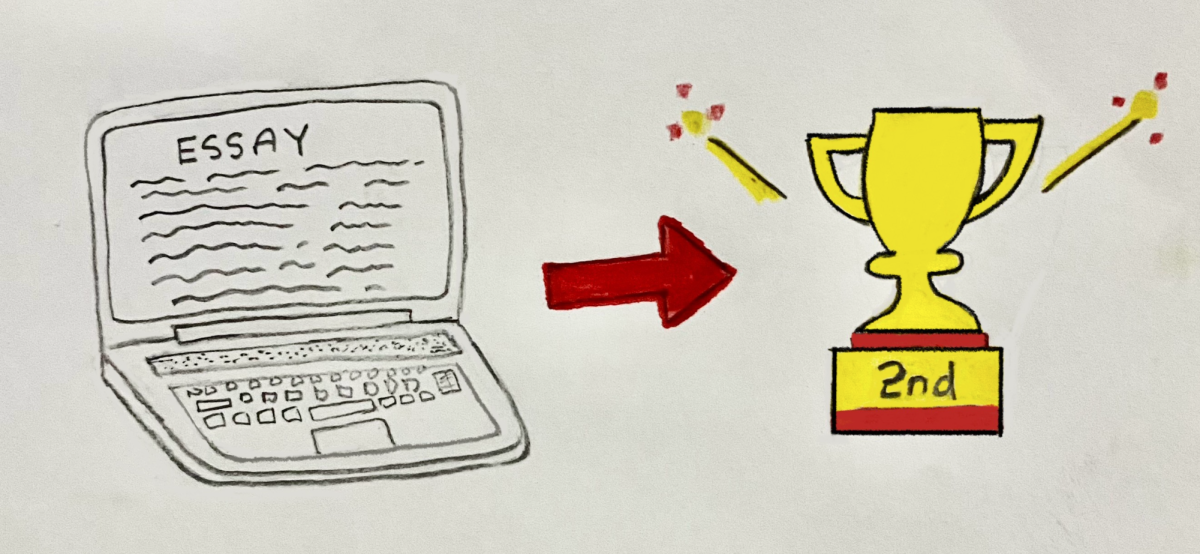



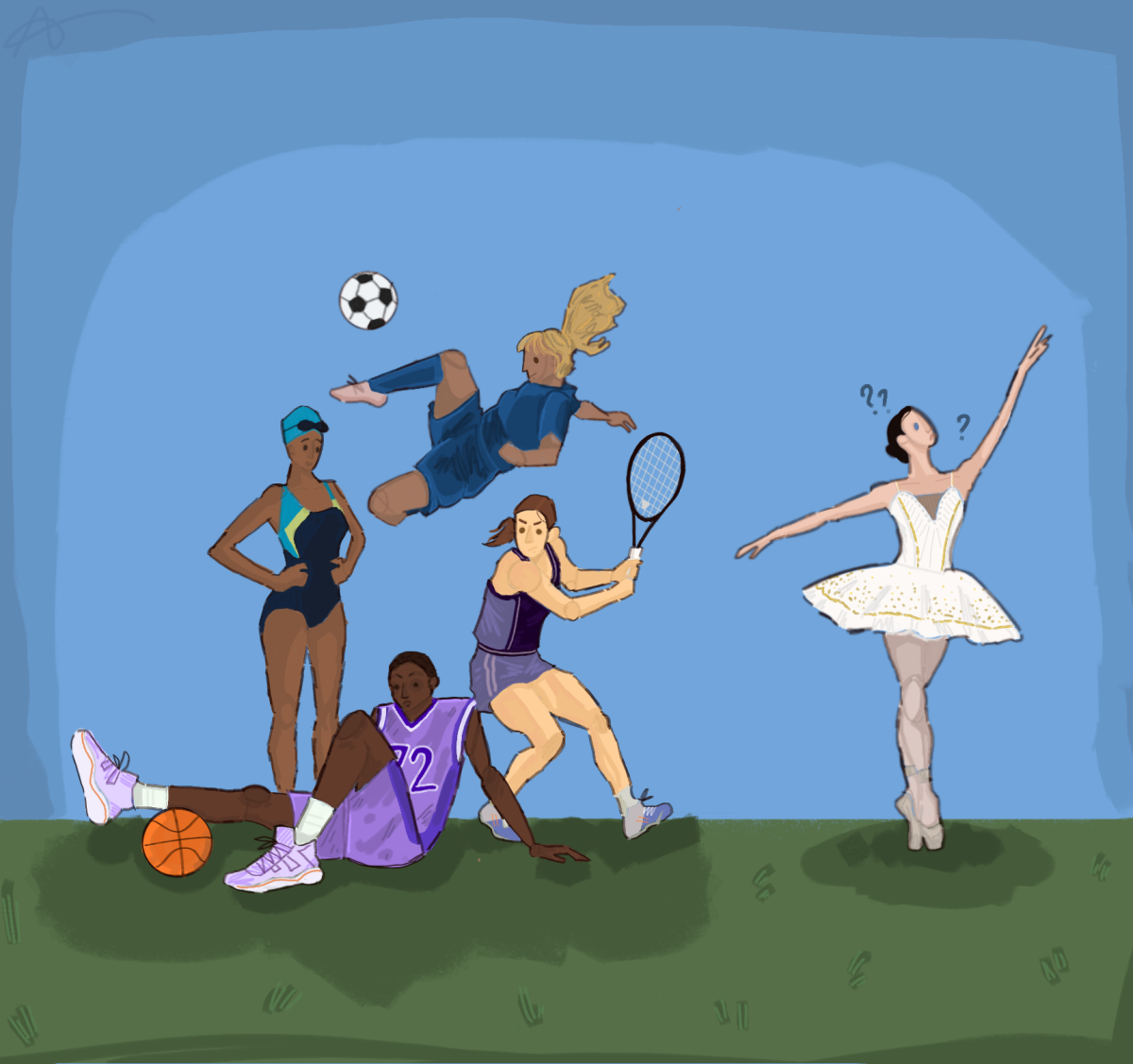
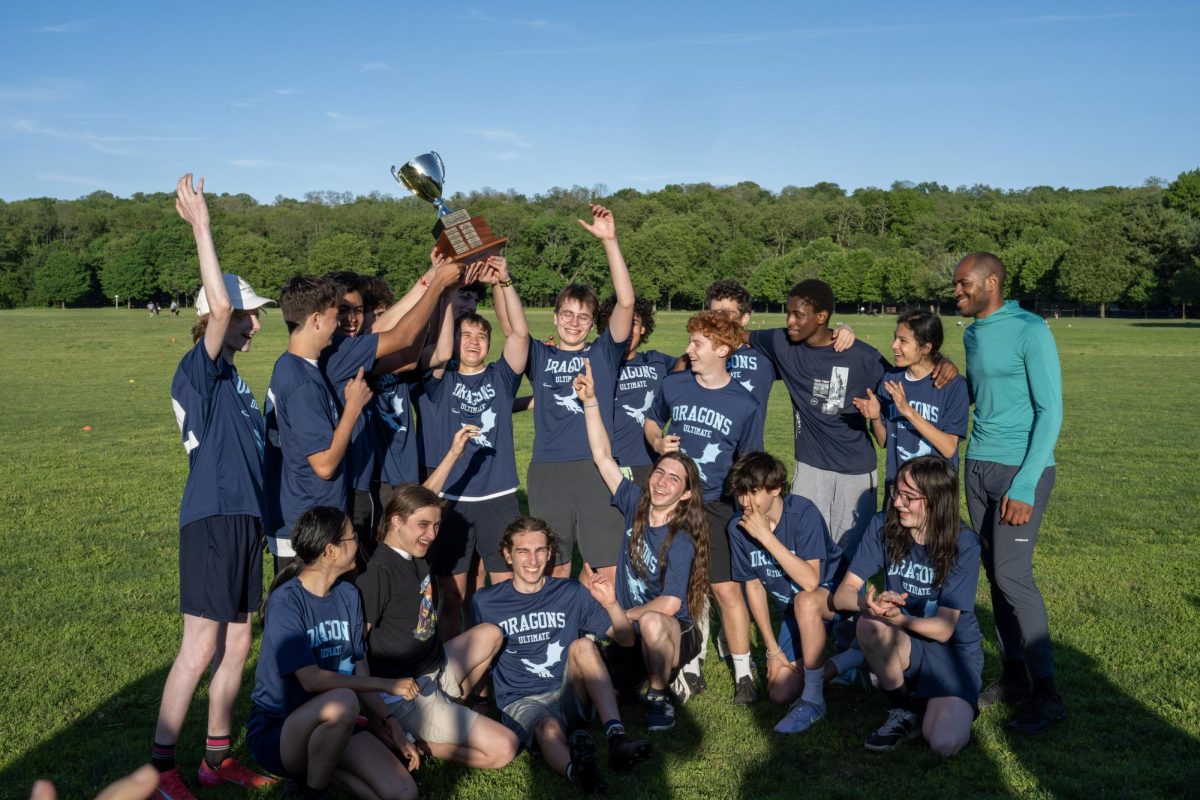
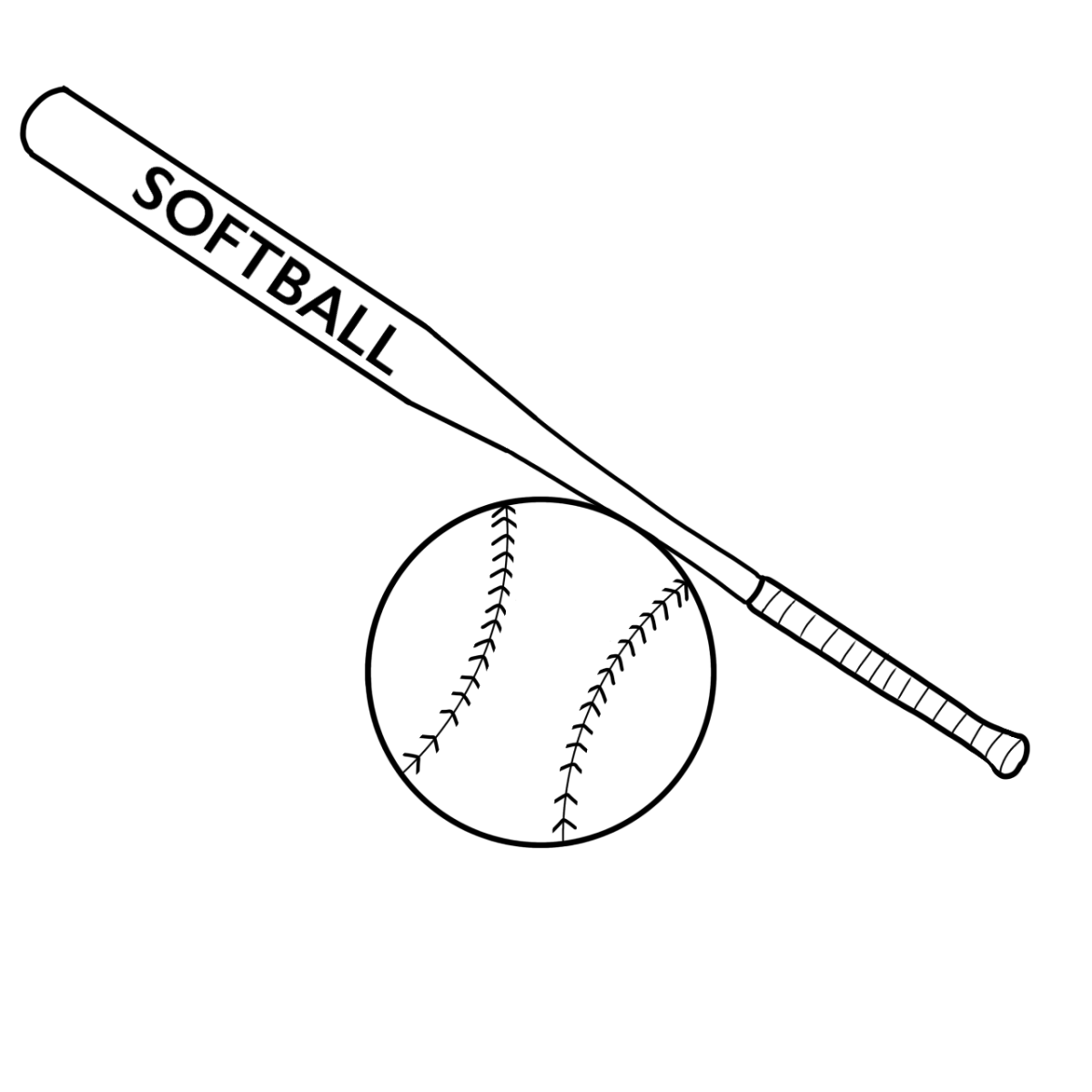
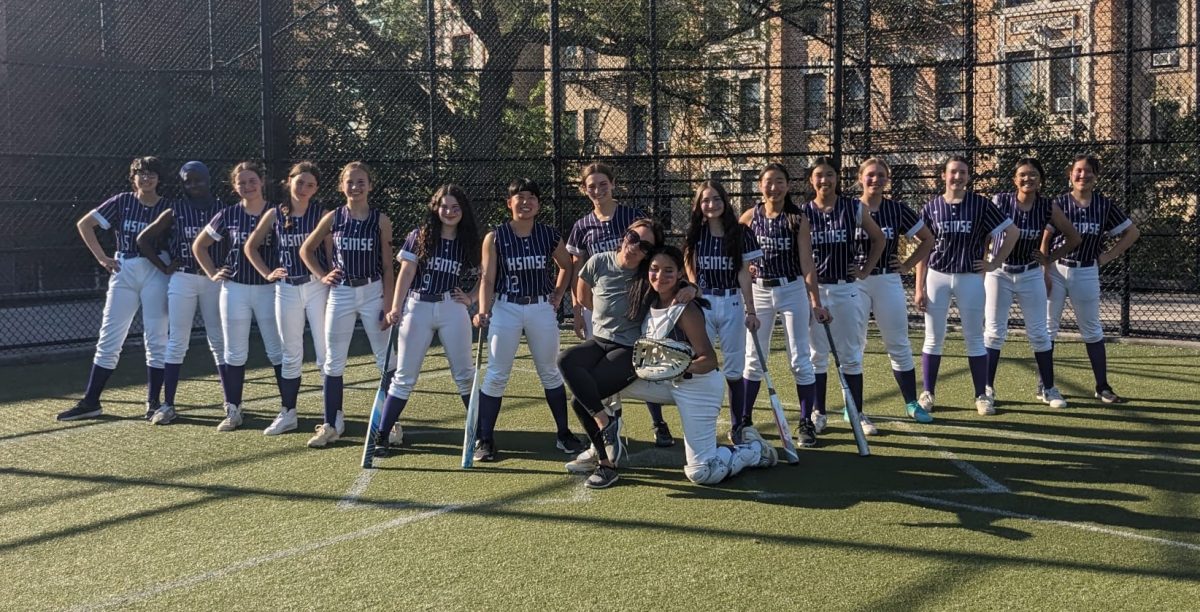
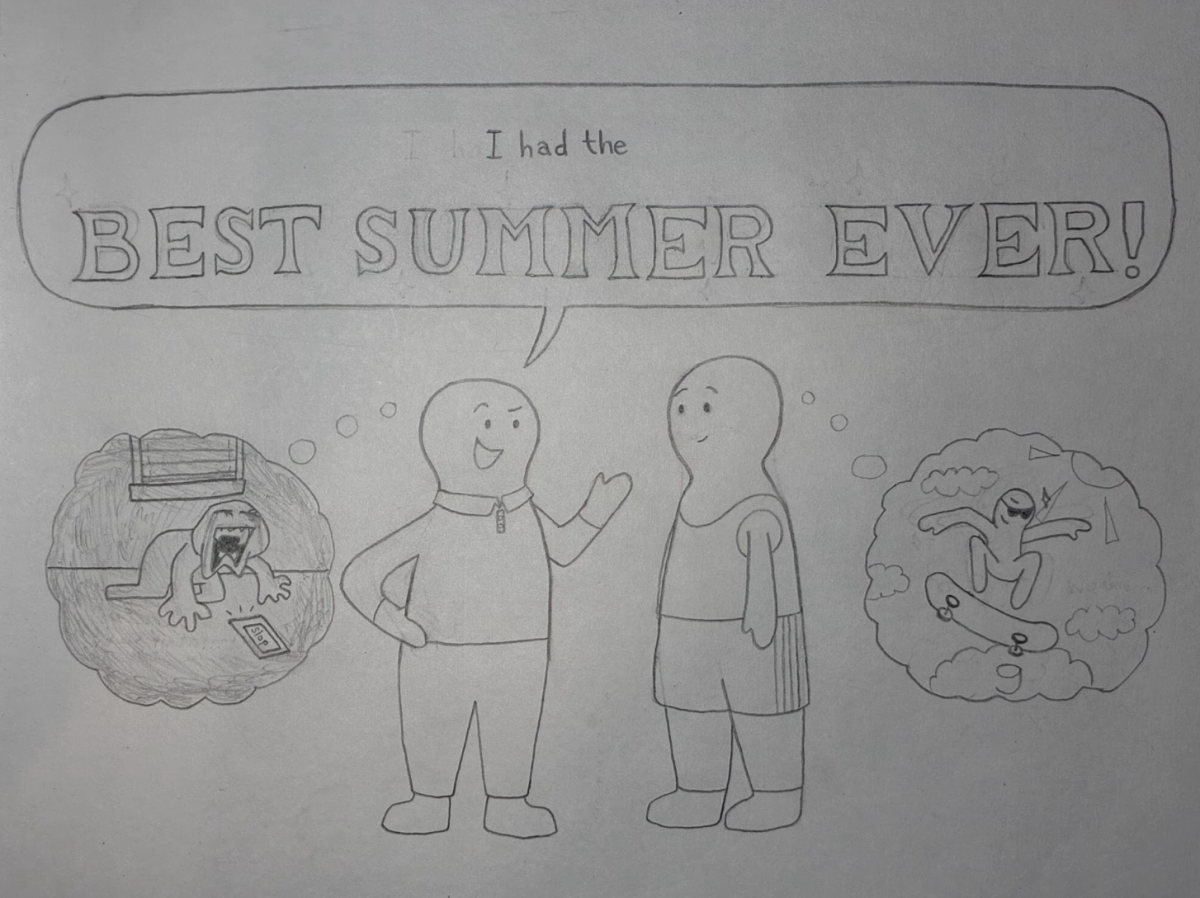
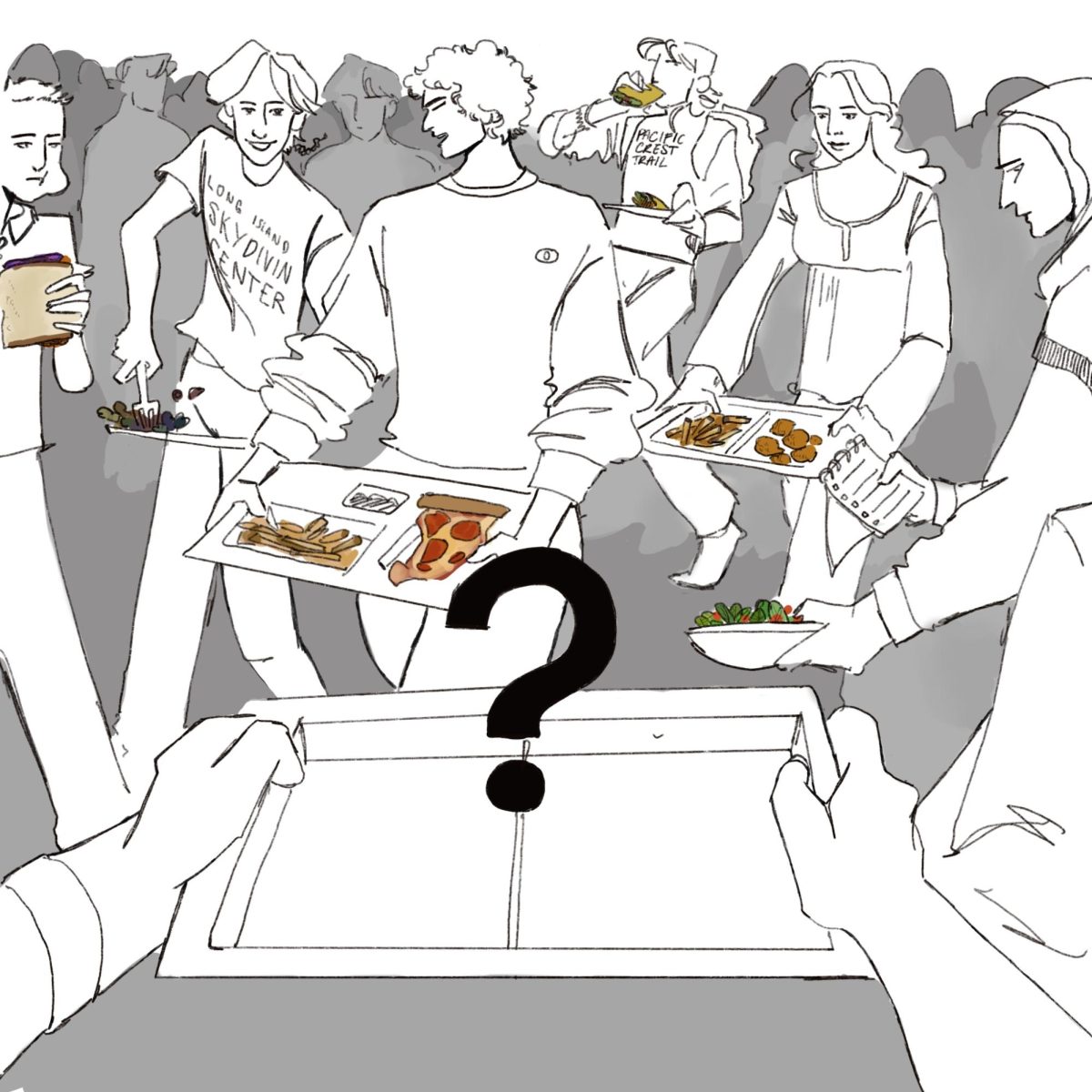
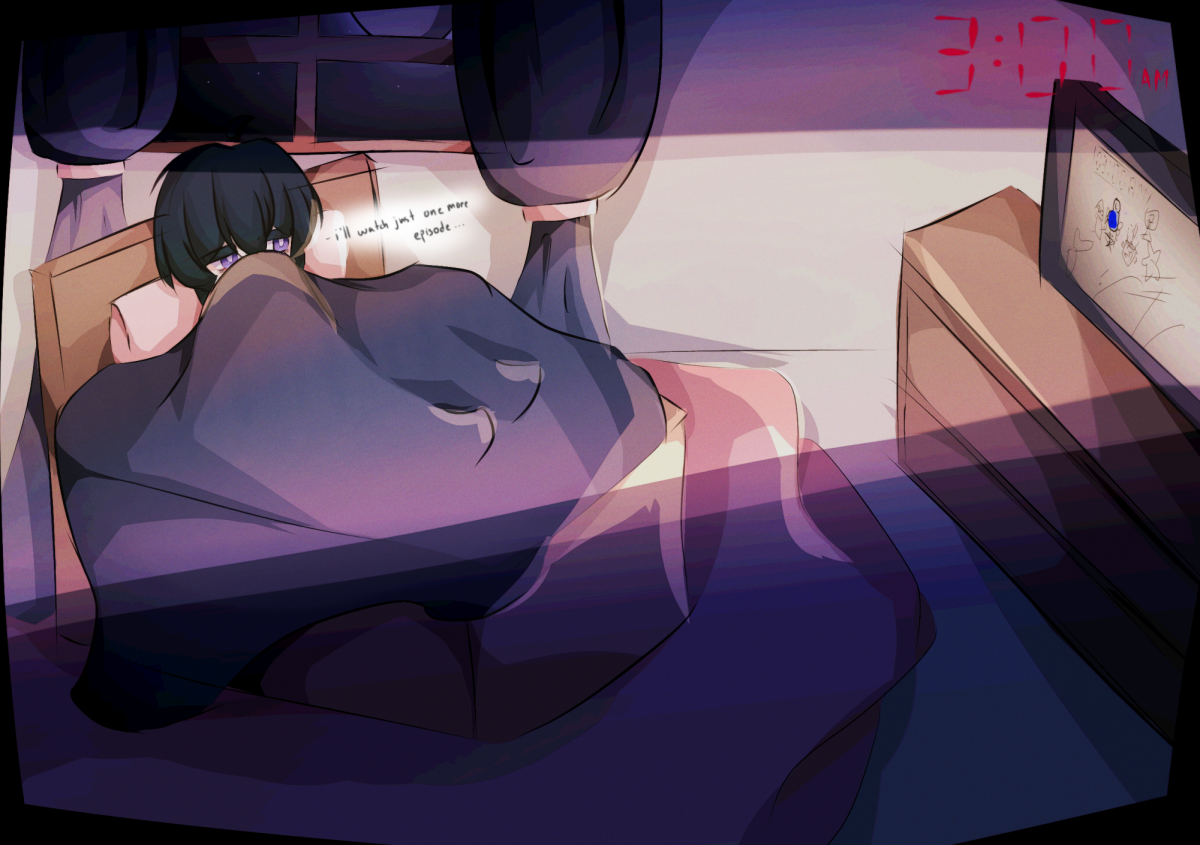

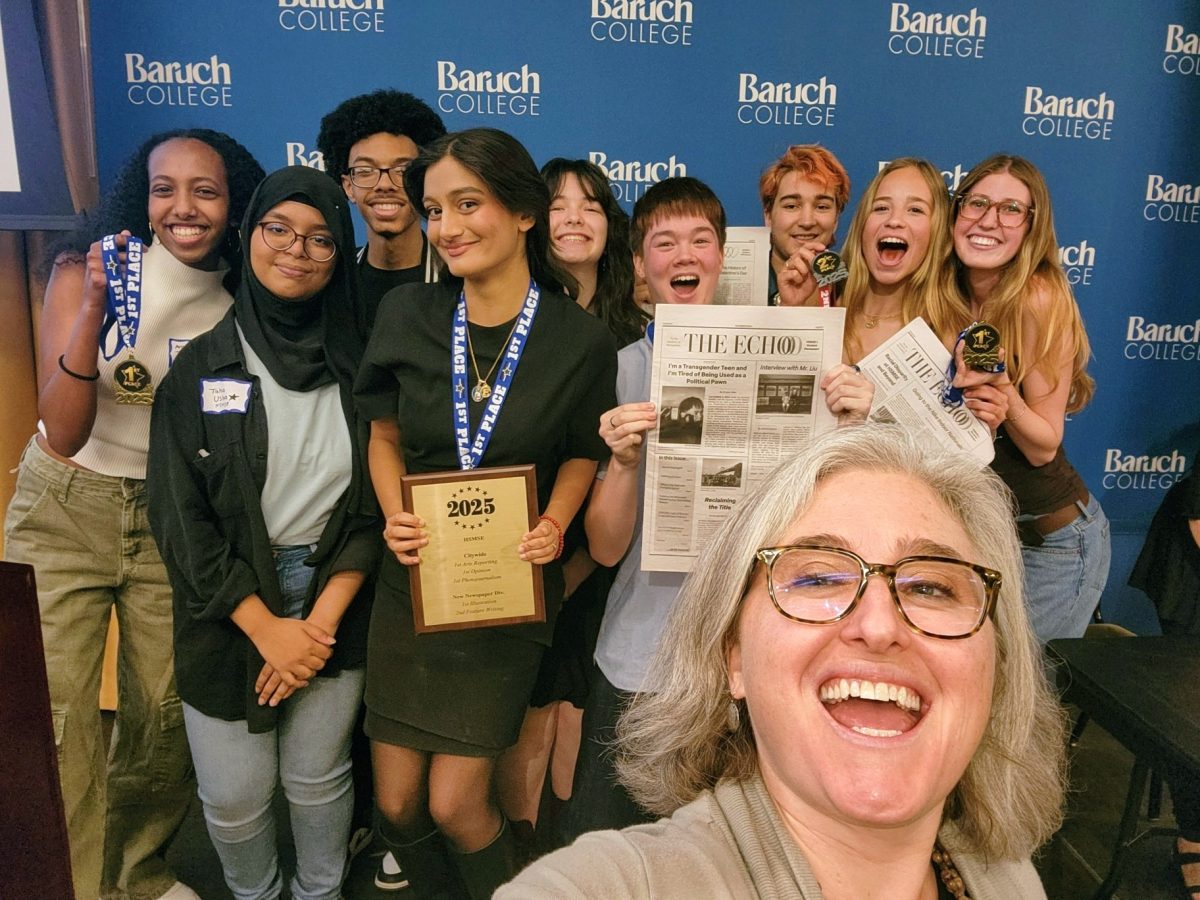

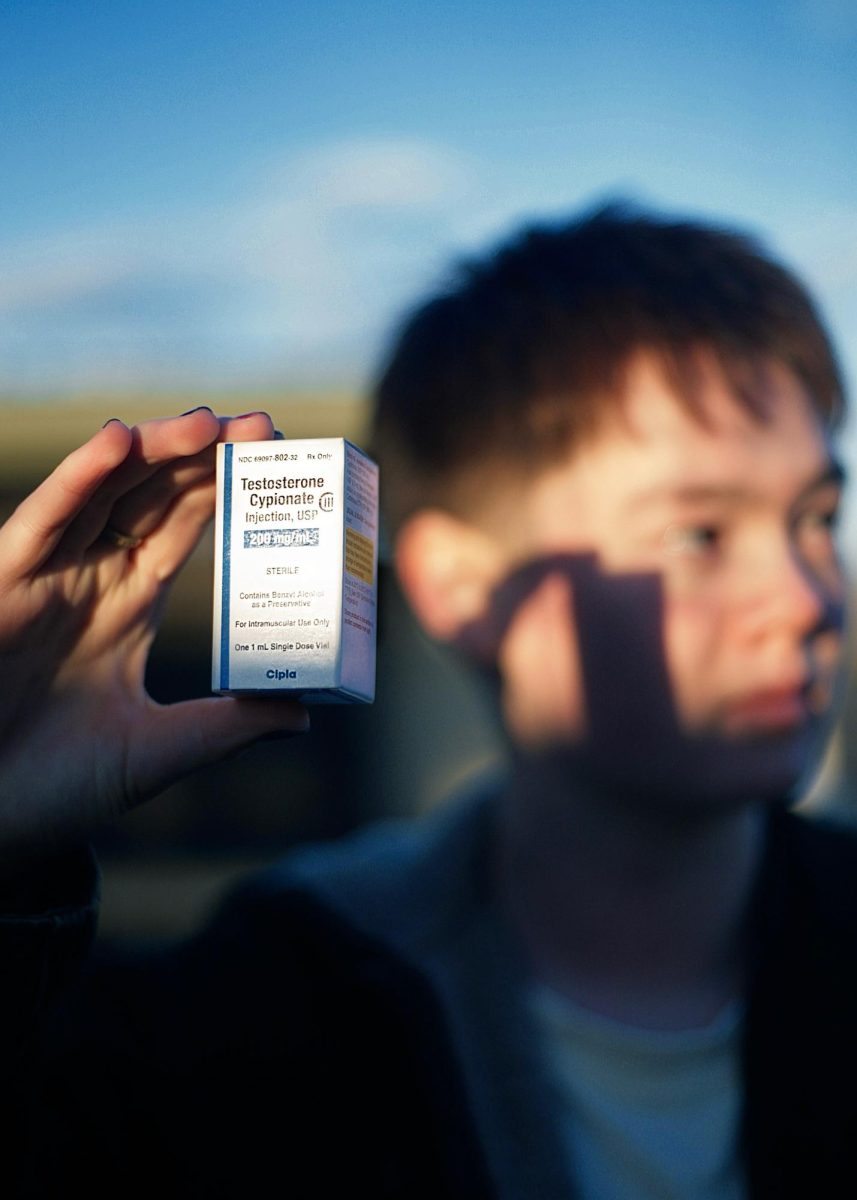
![[ERROR]: Lack of Women in the Software Industry](https://theechohsmse.com/wp-content/uploads/2024/12/APC_0280-984x1200.jpeg)
